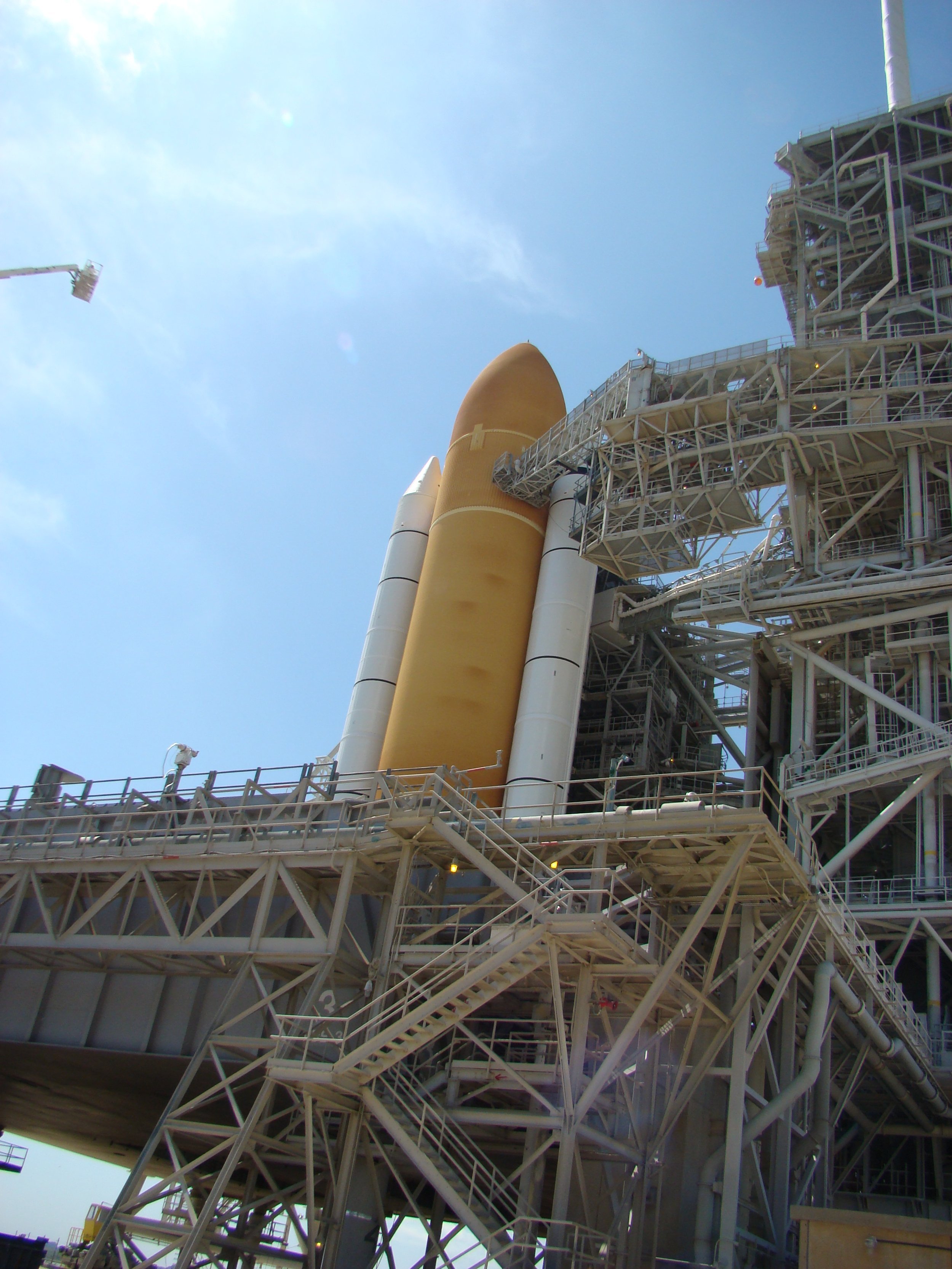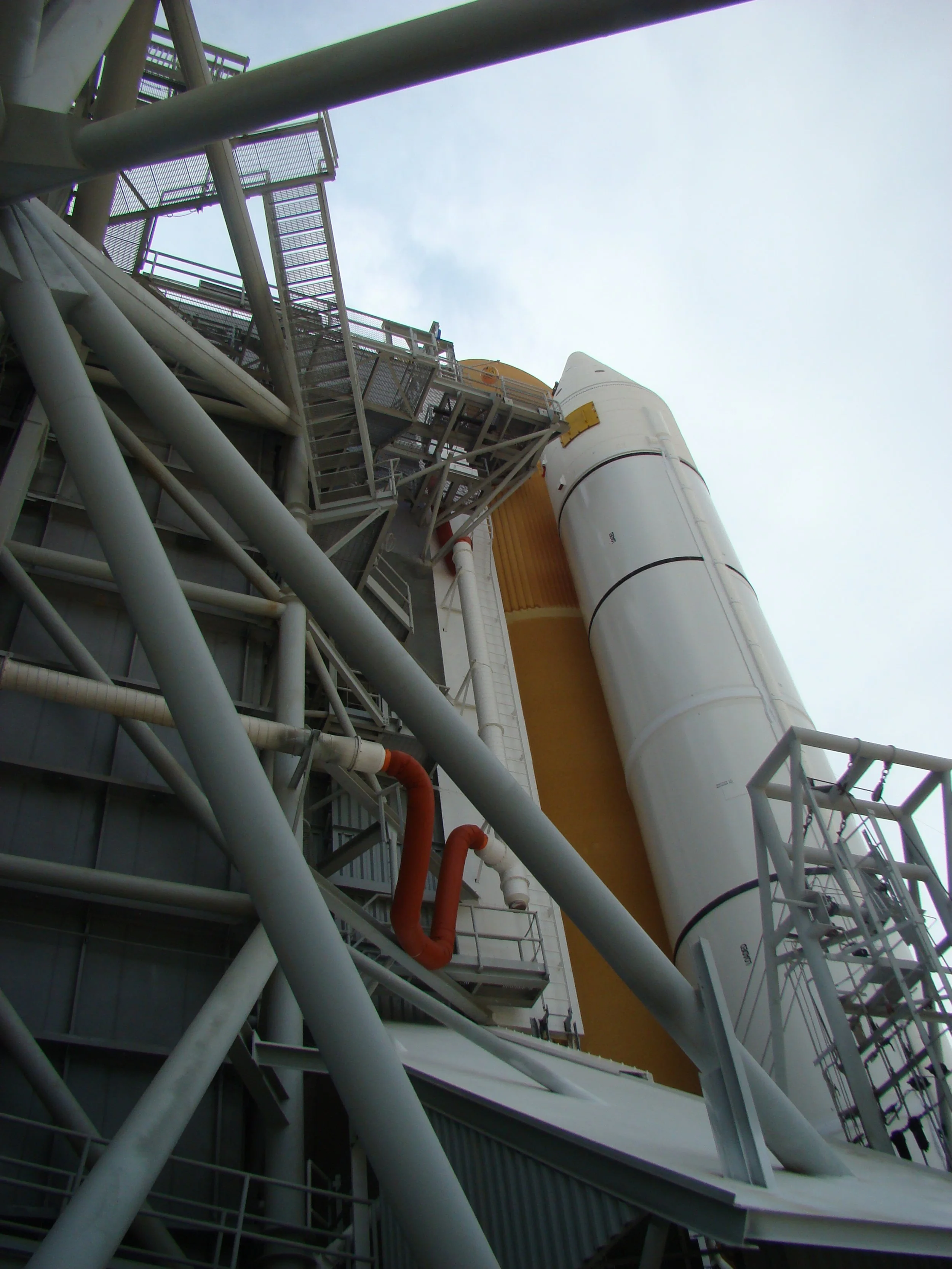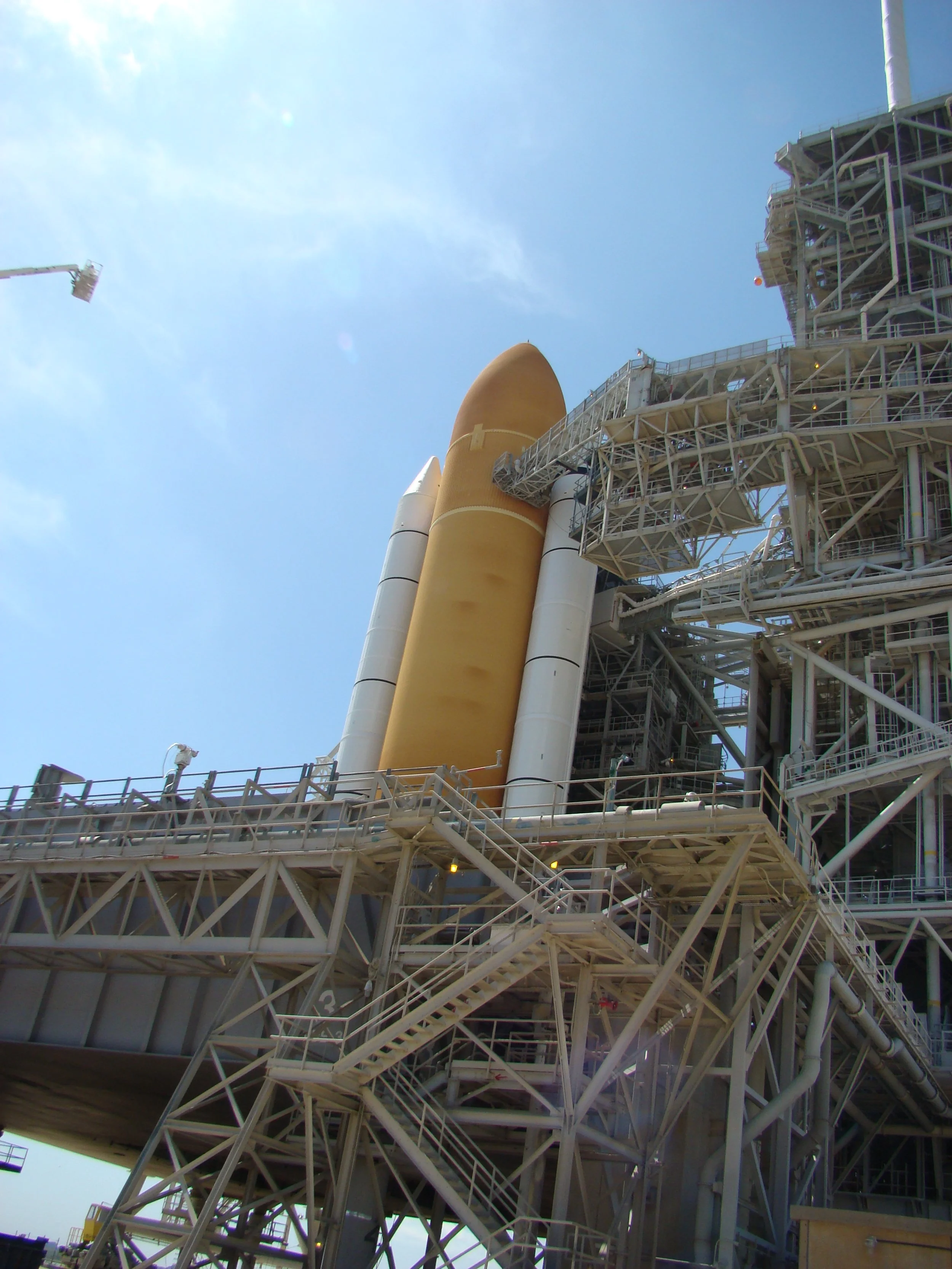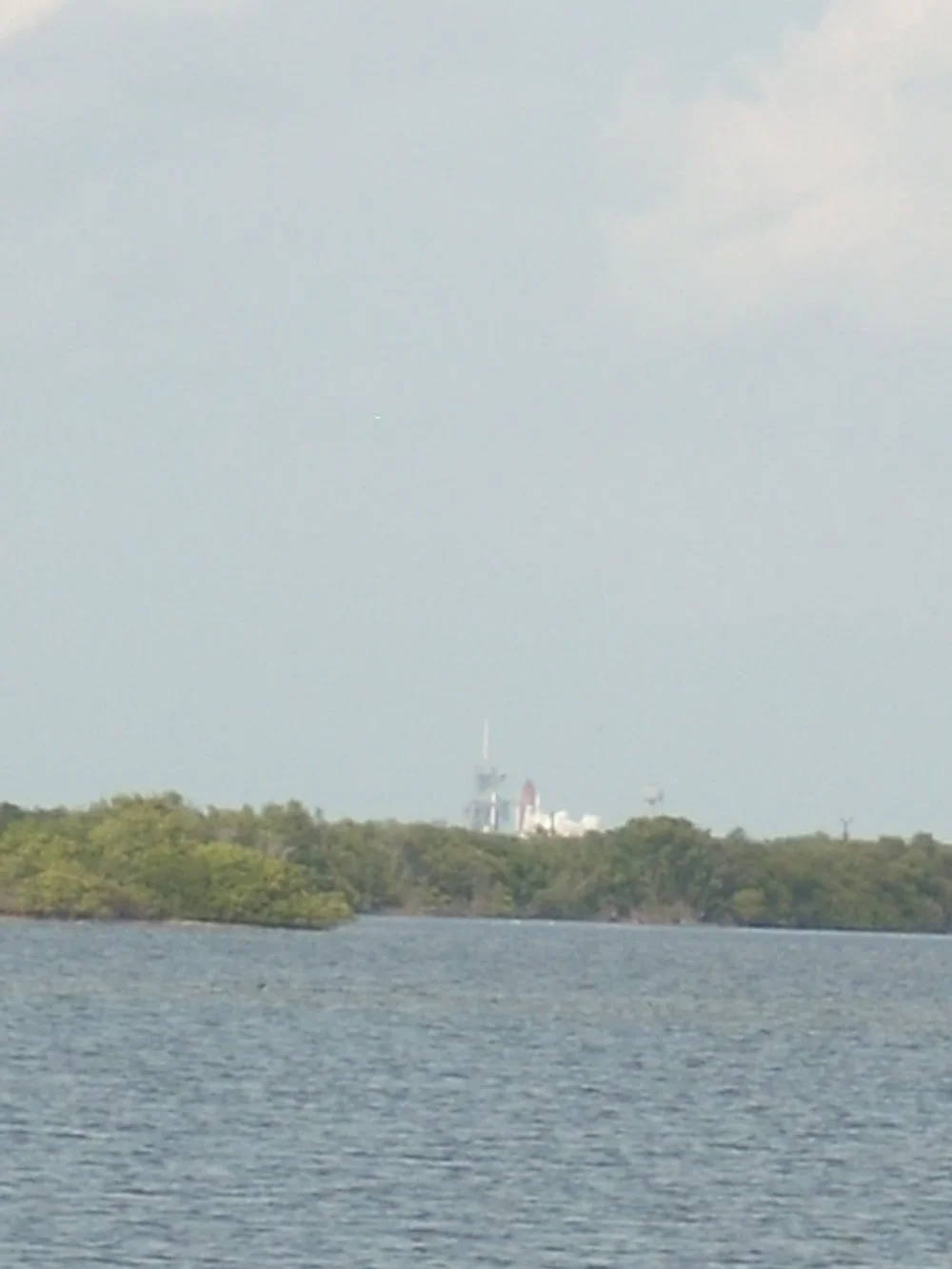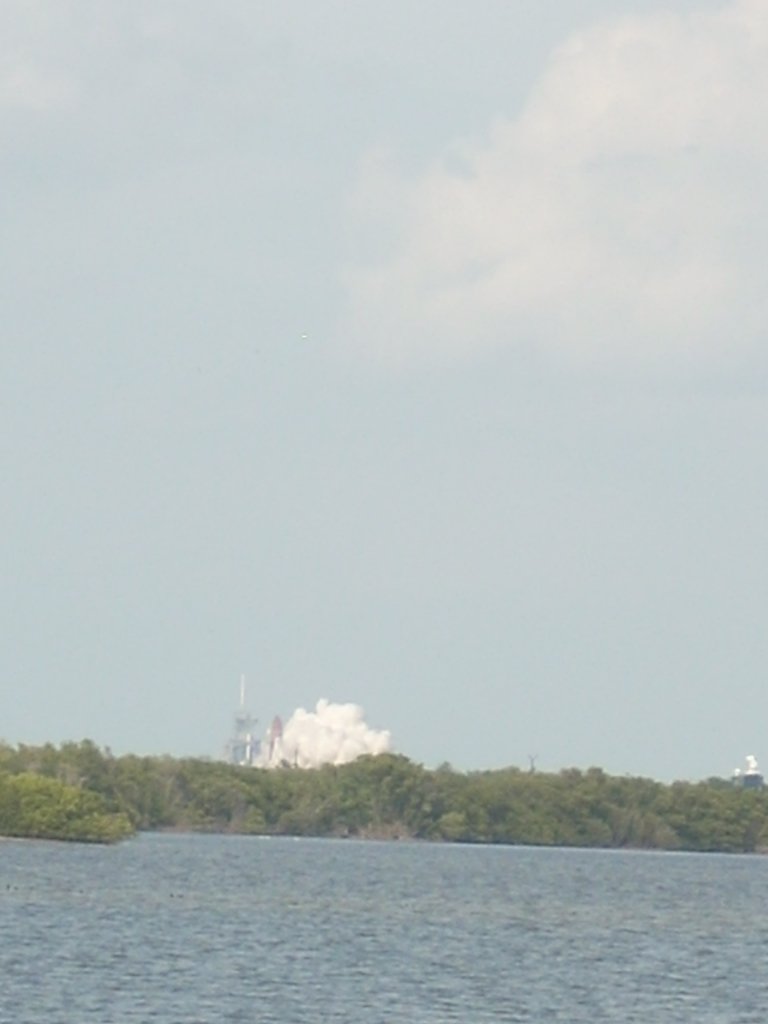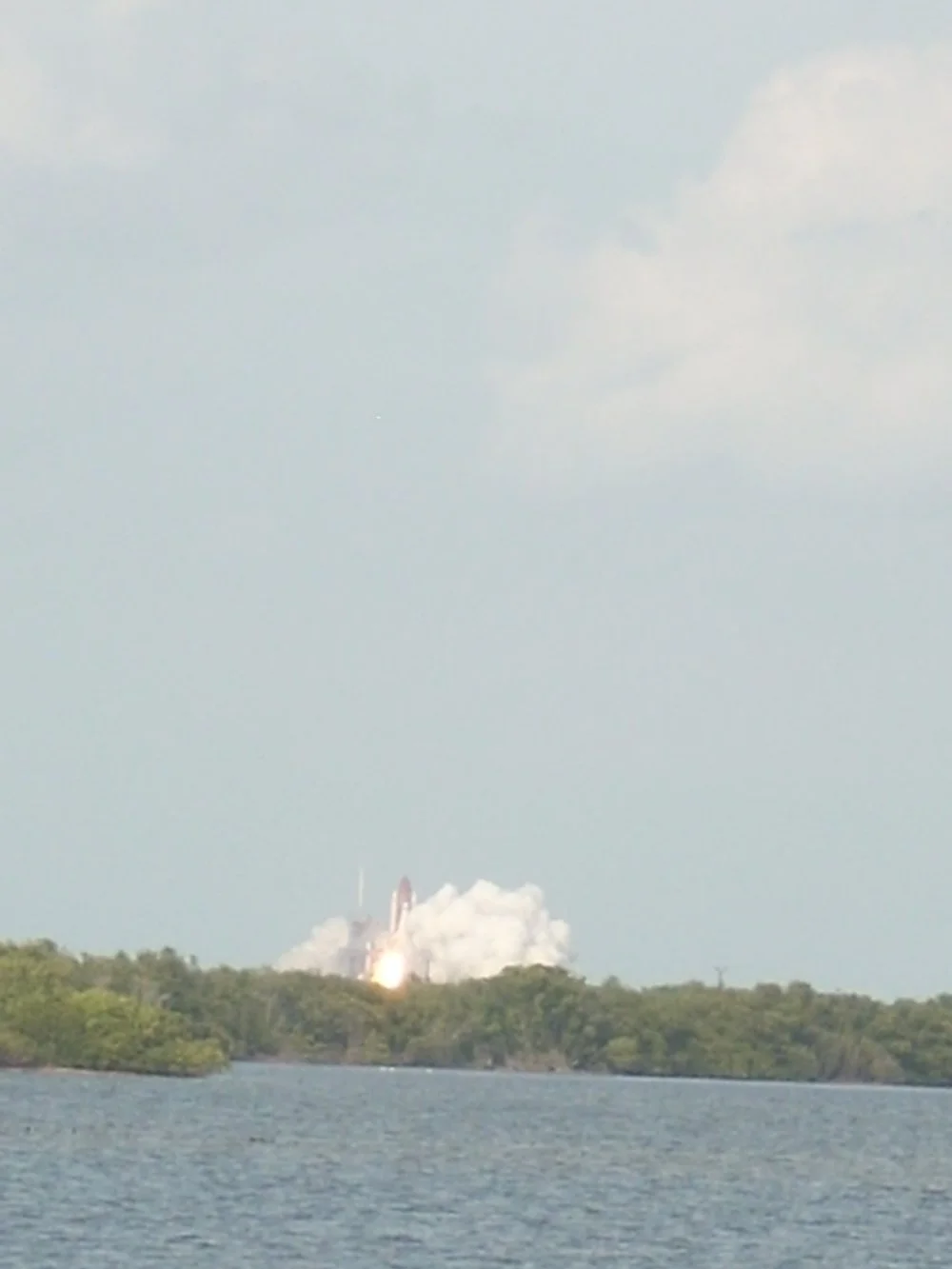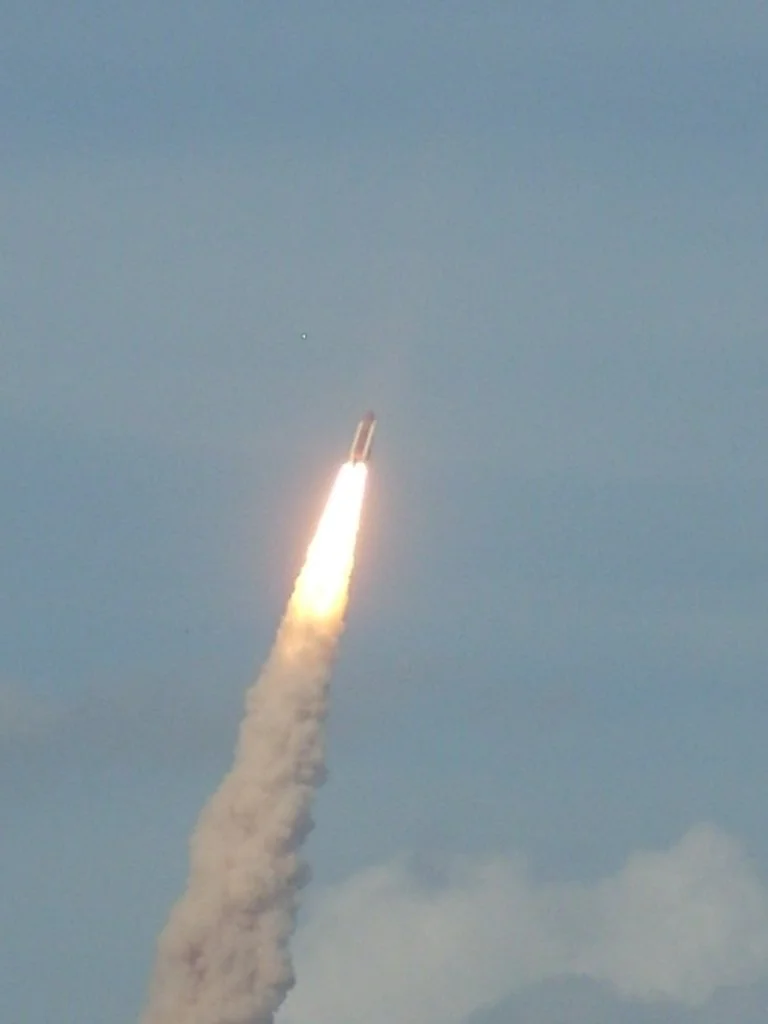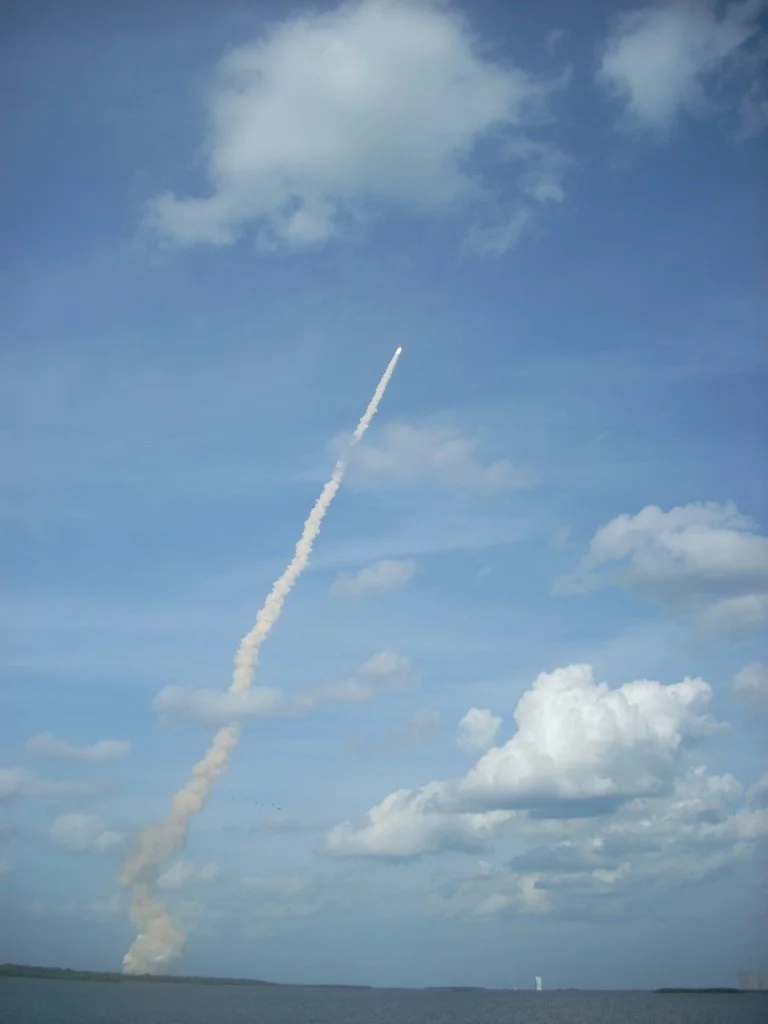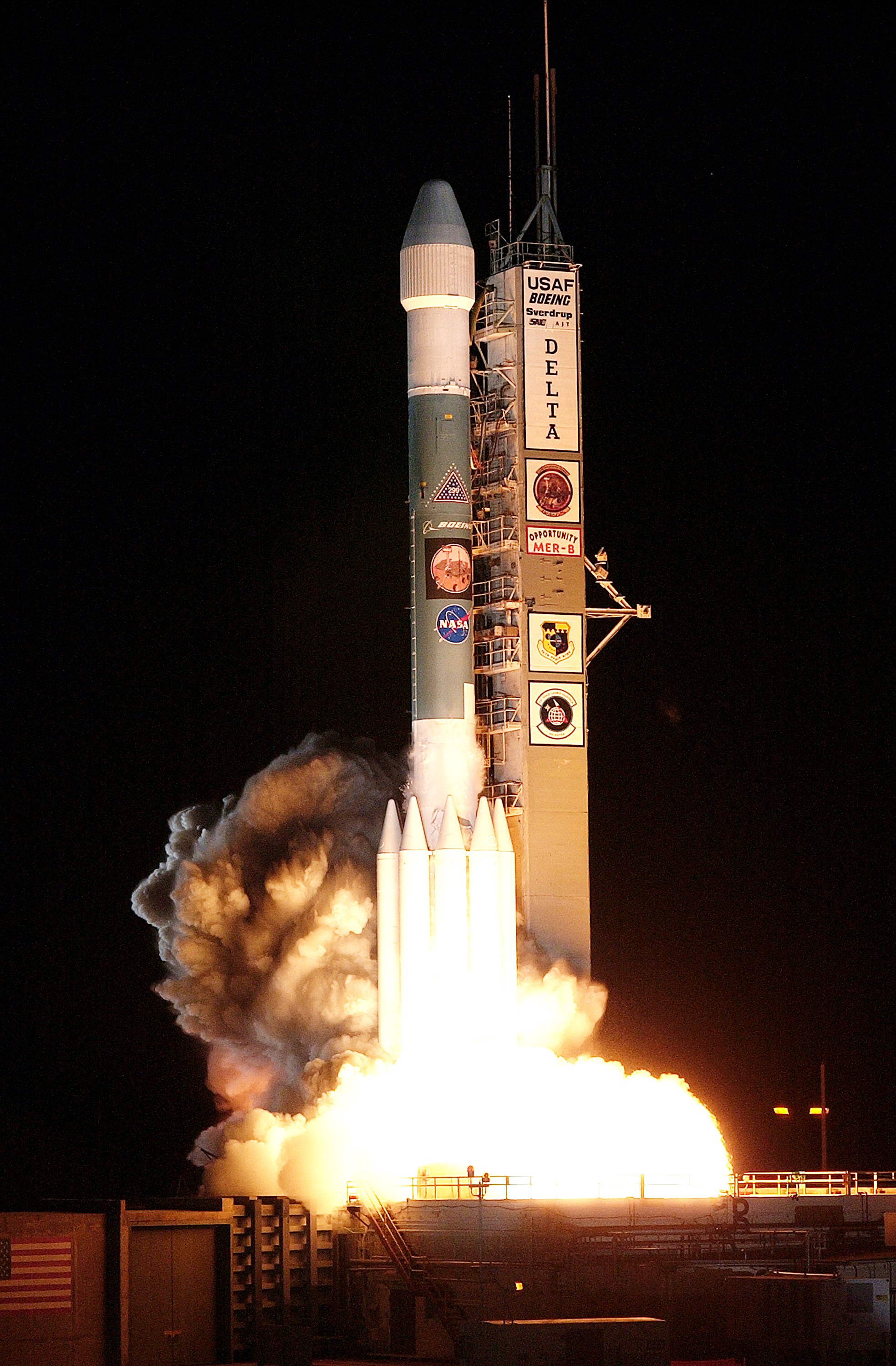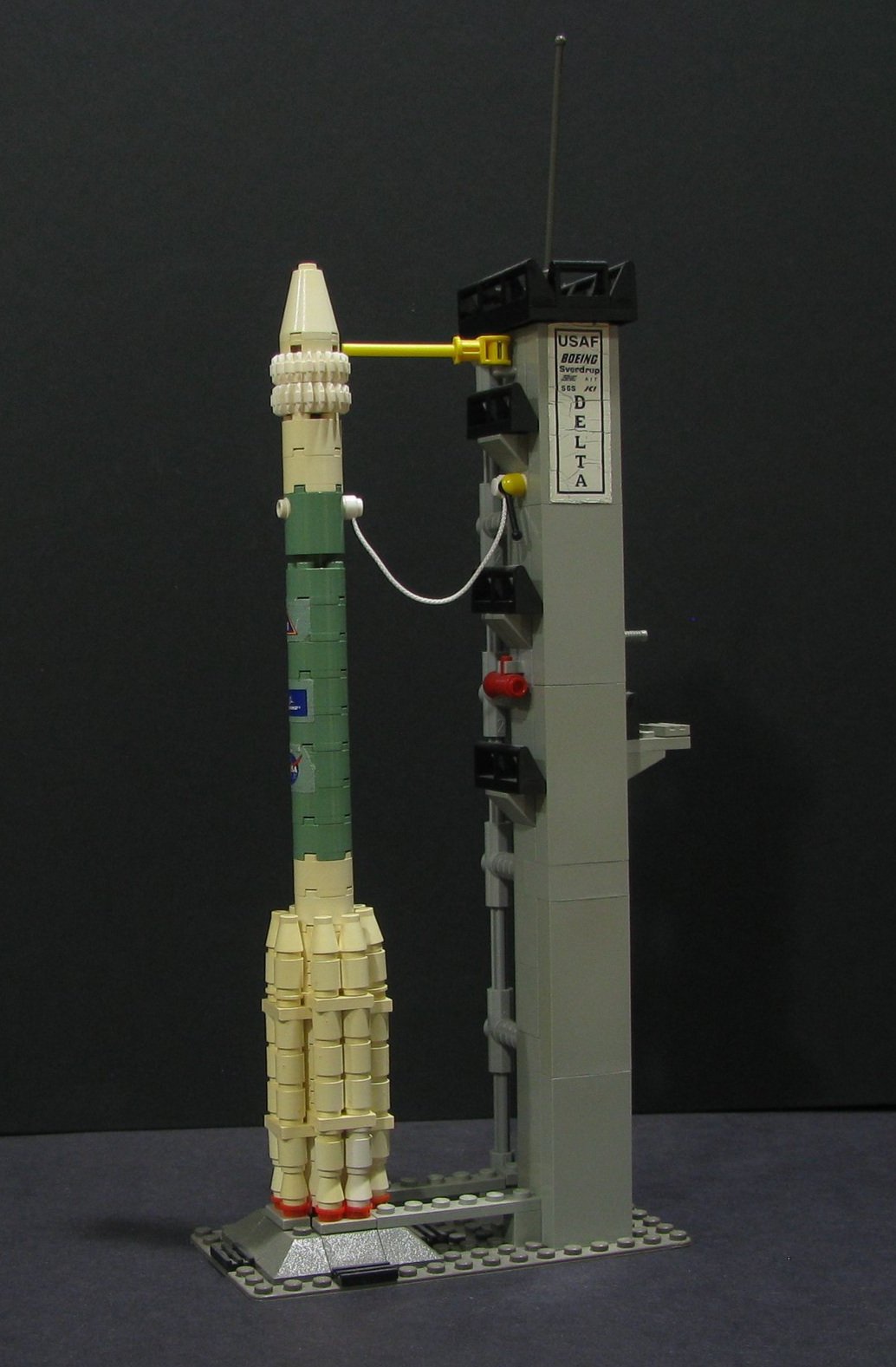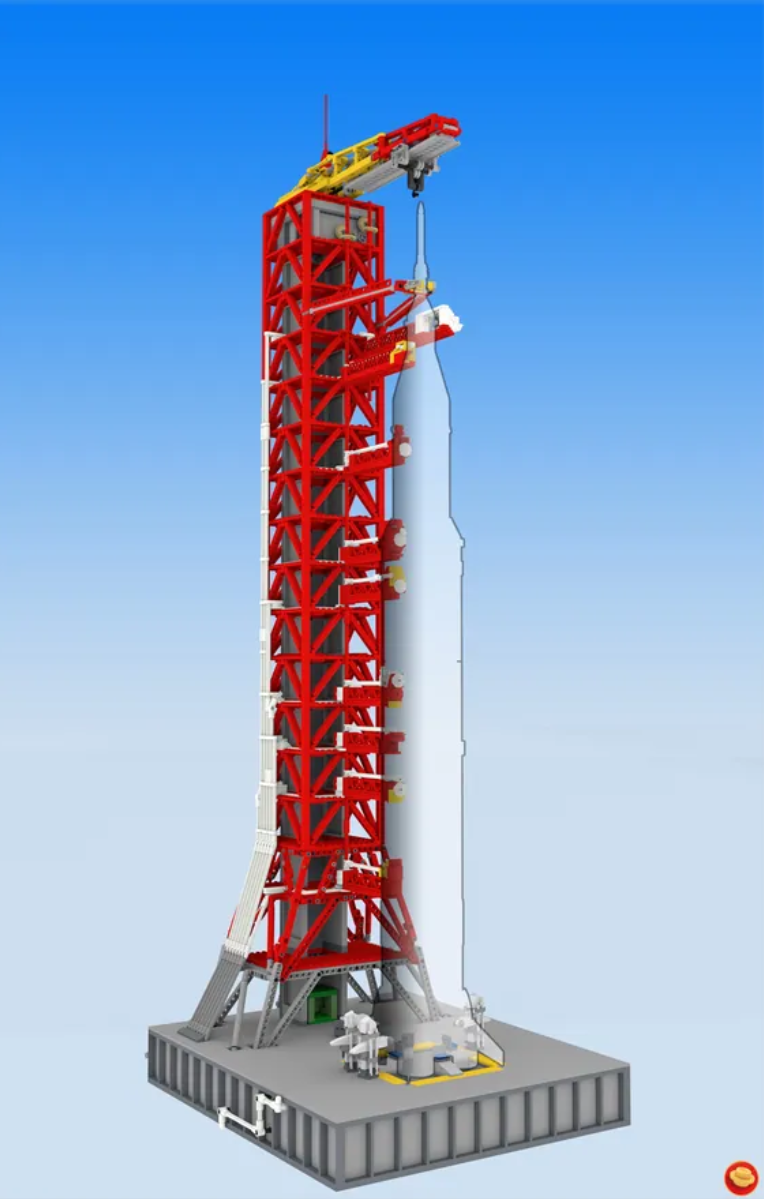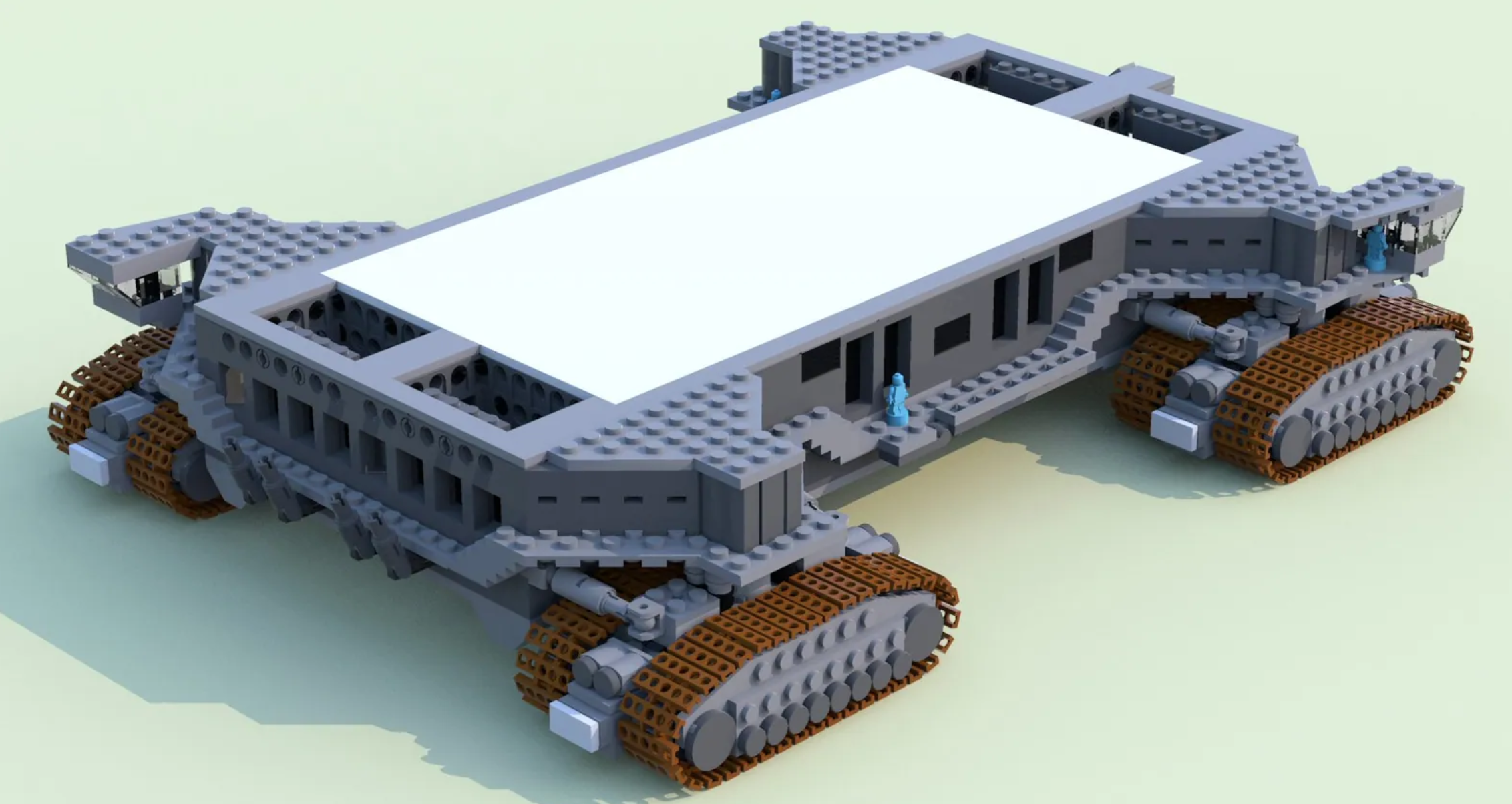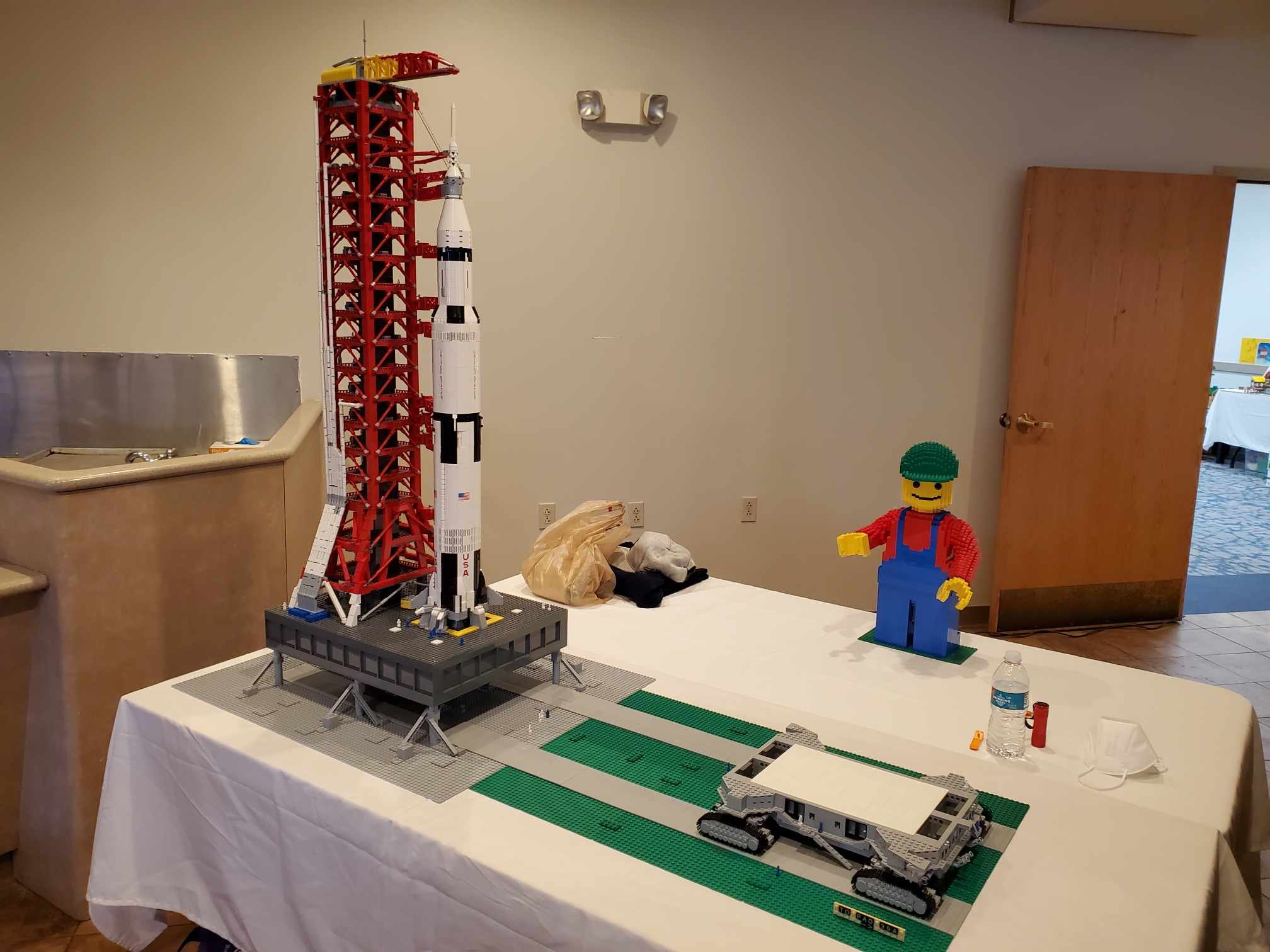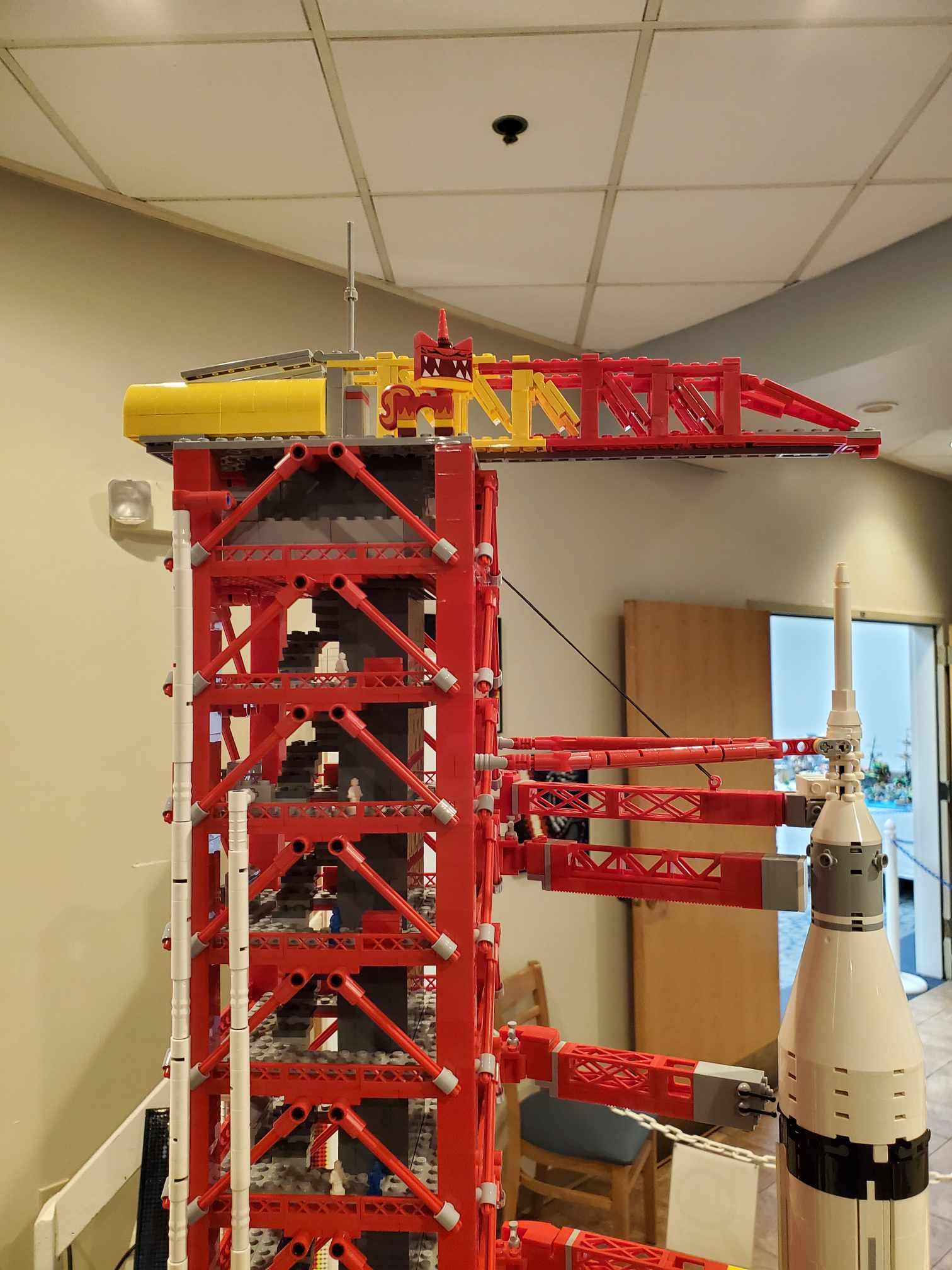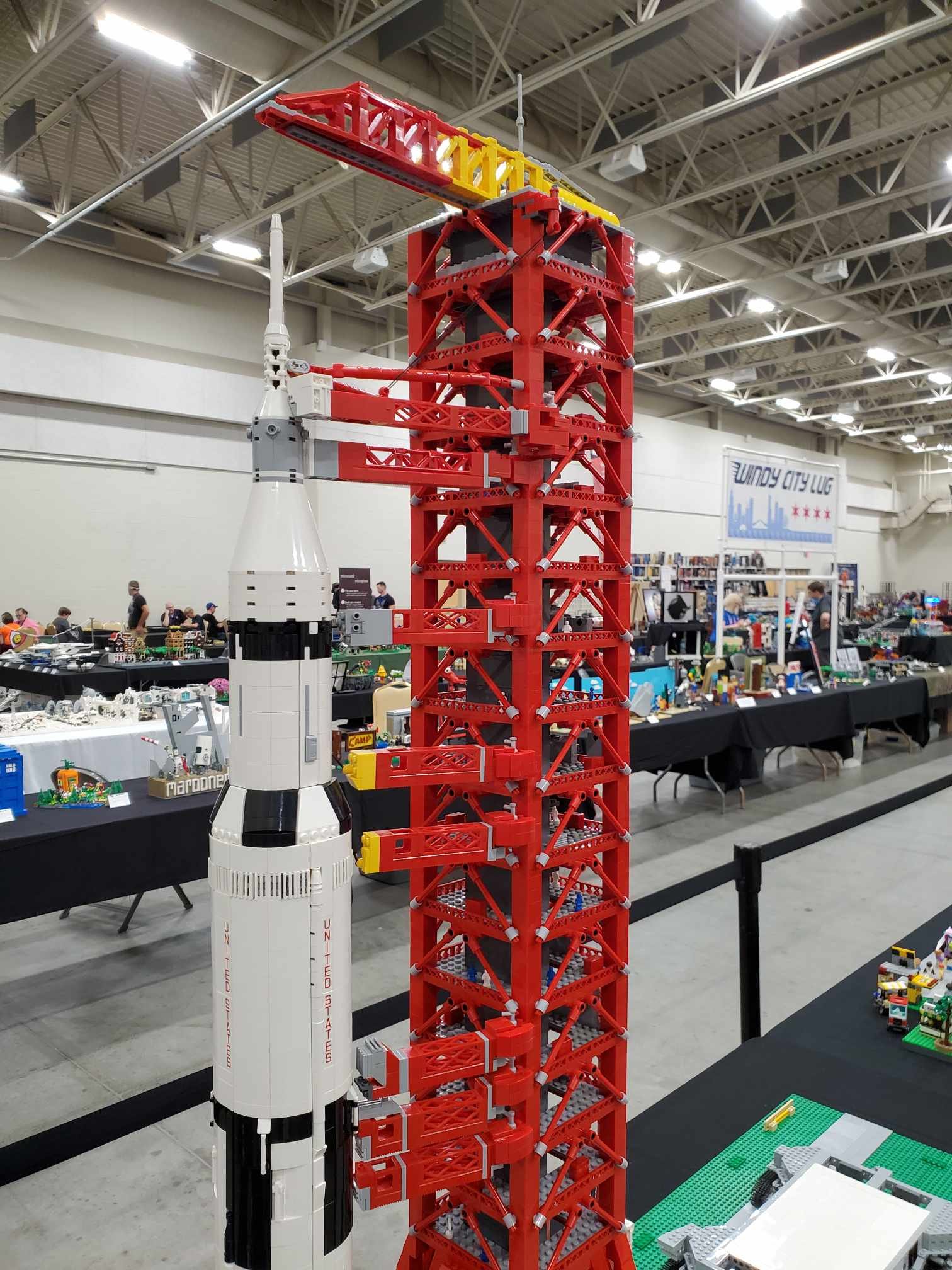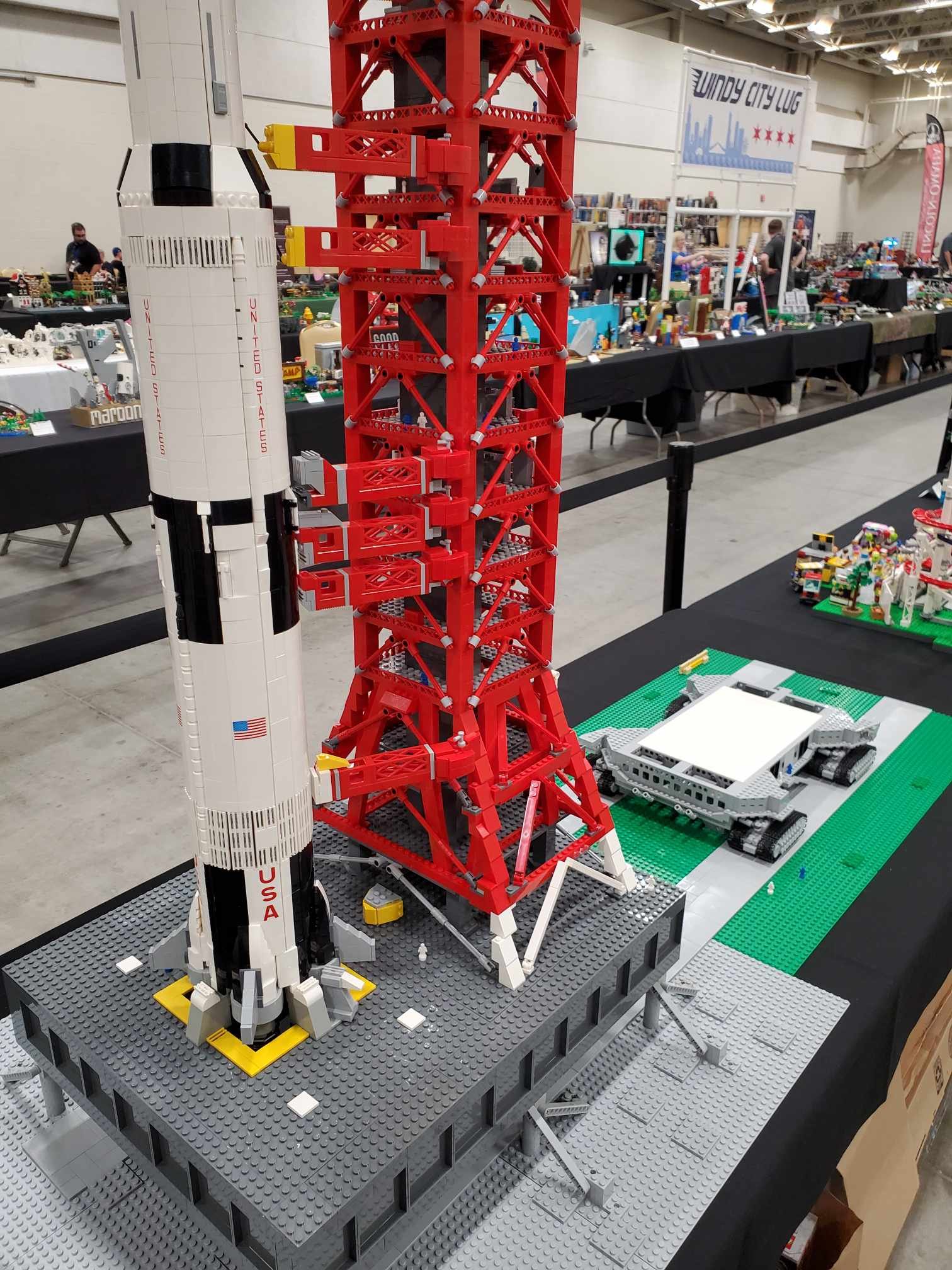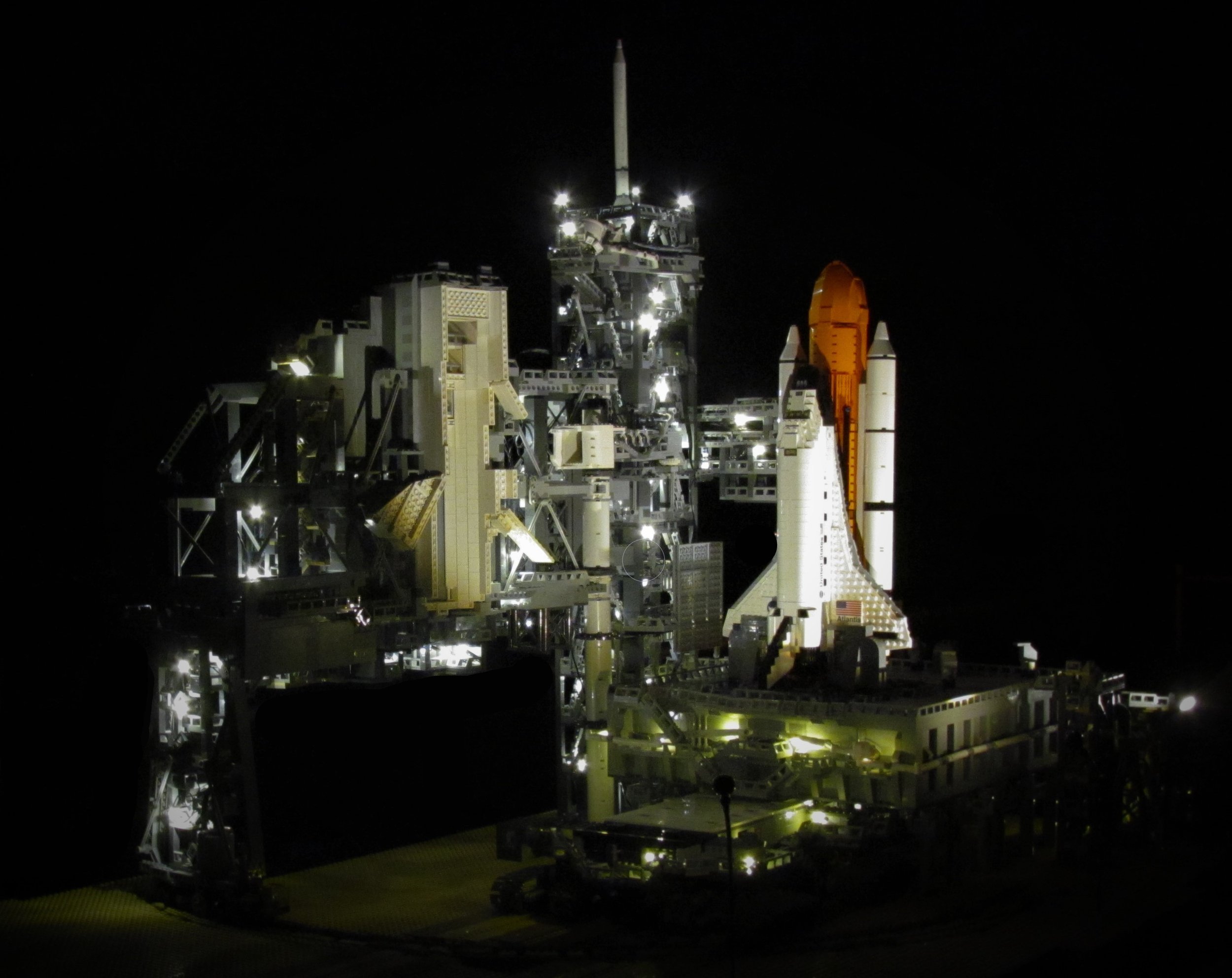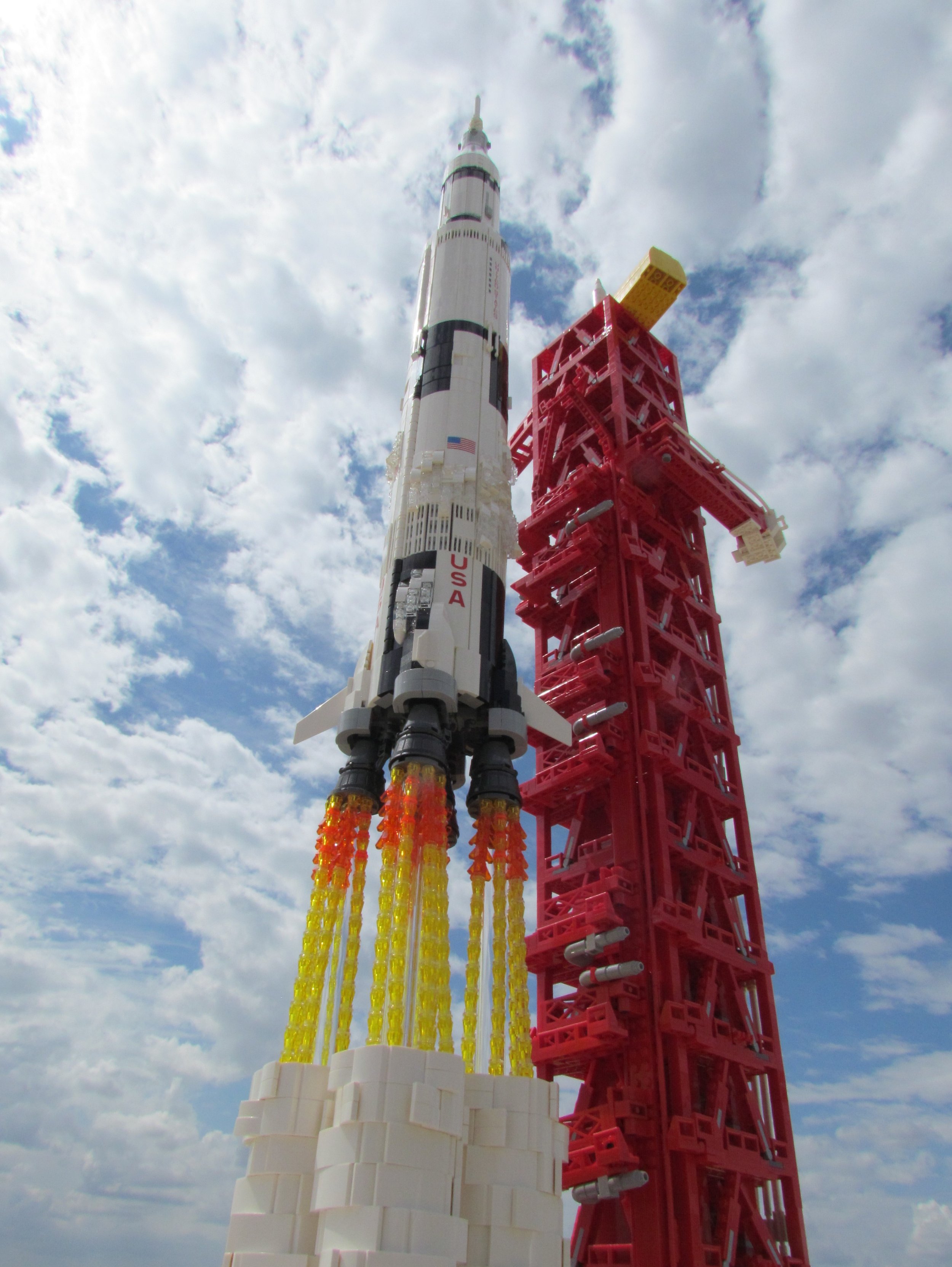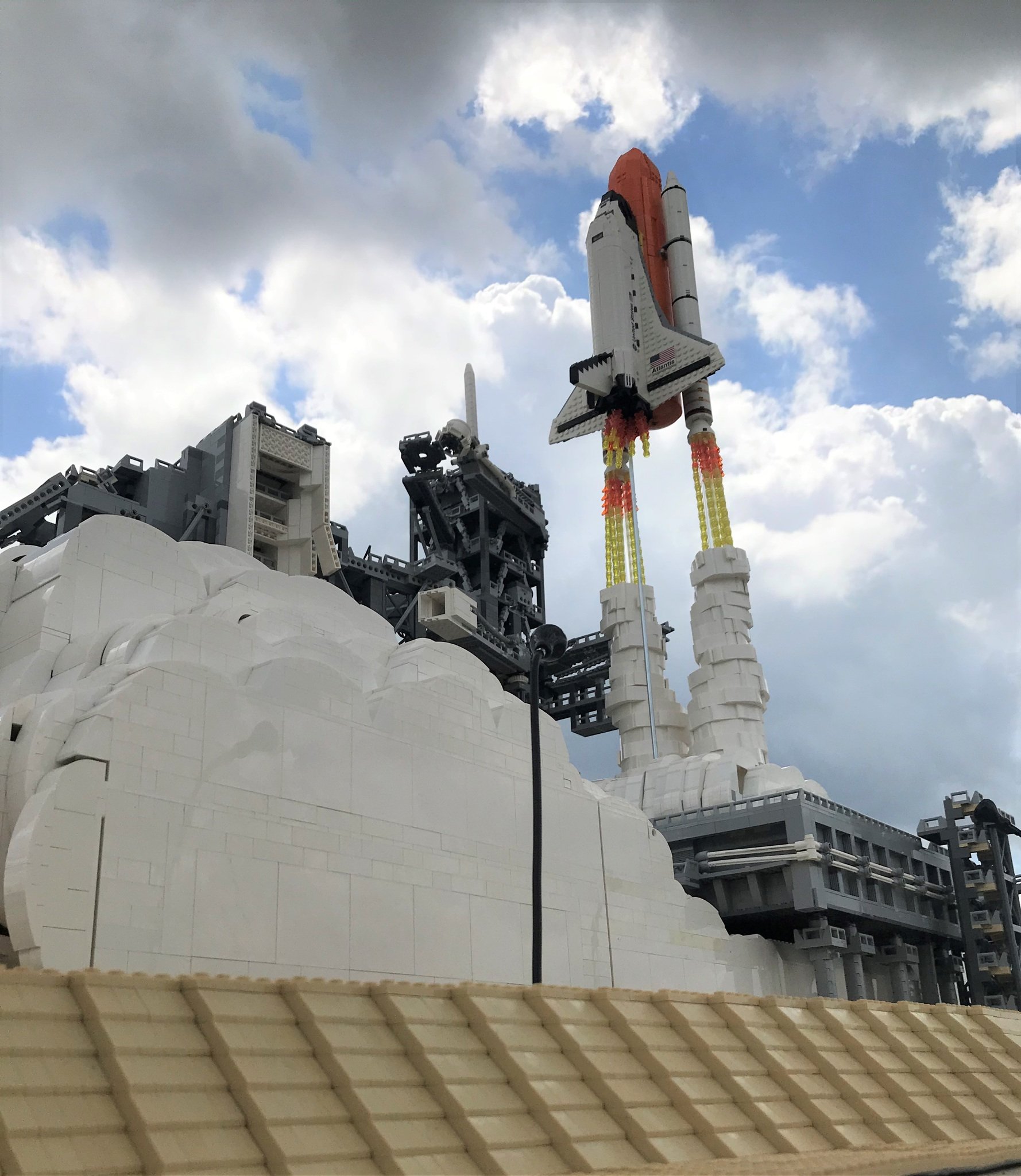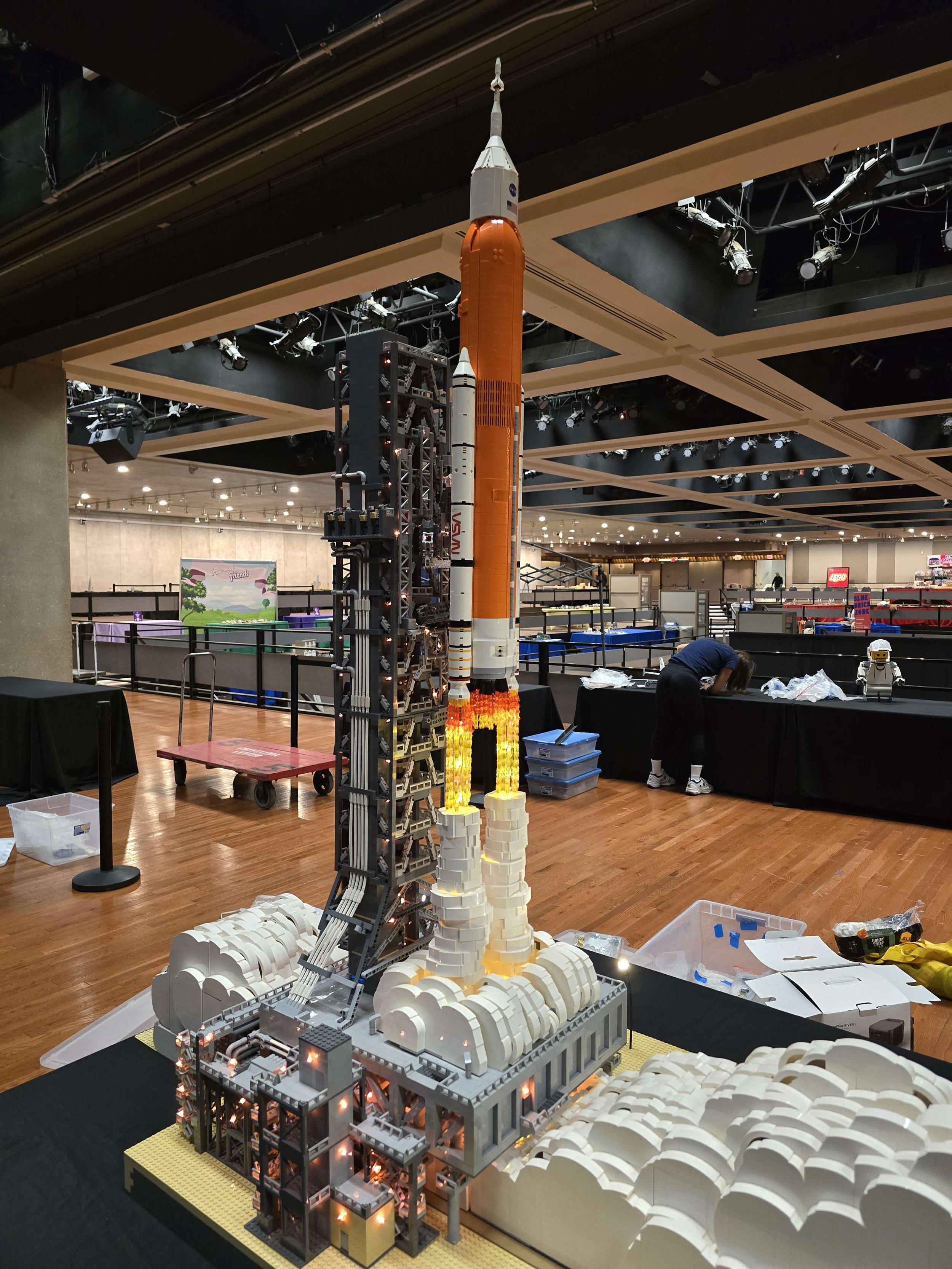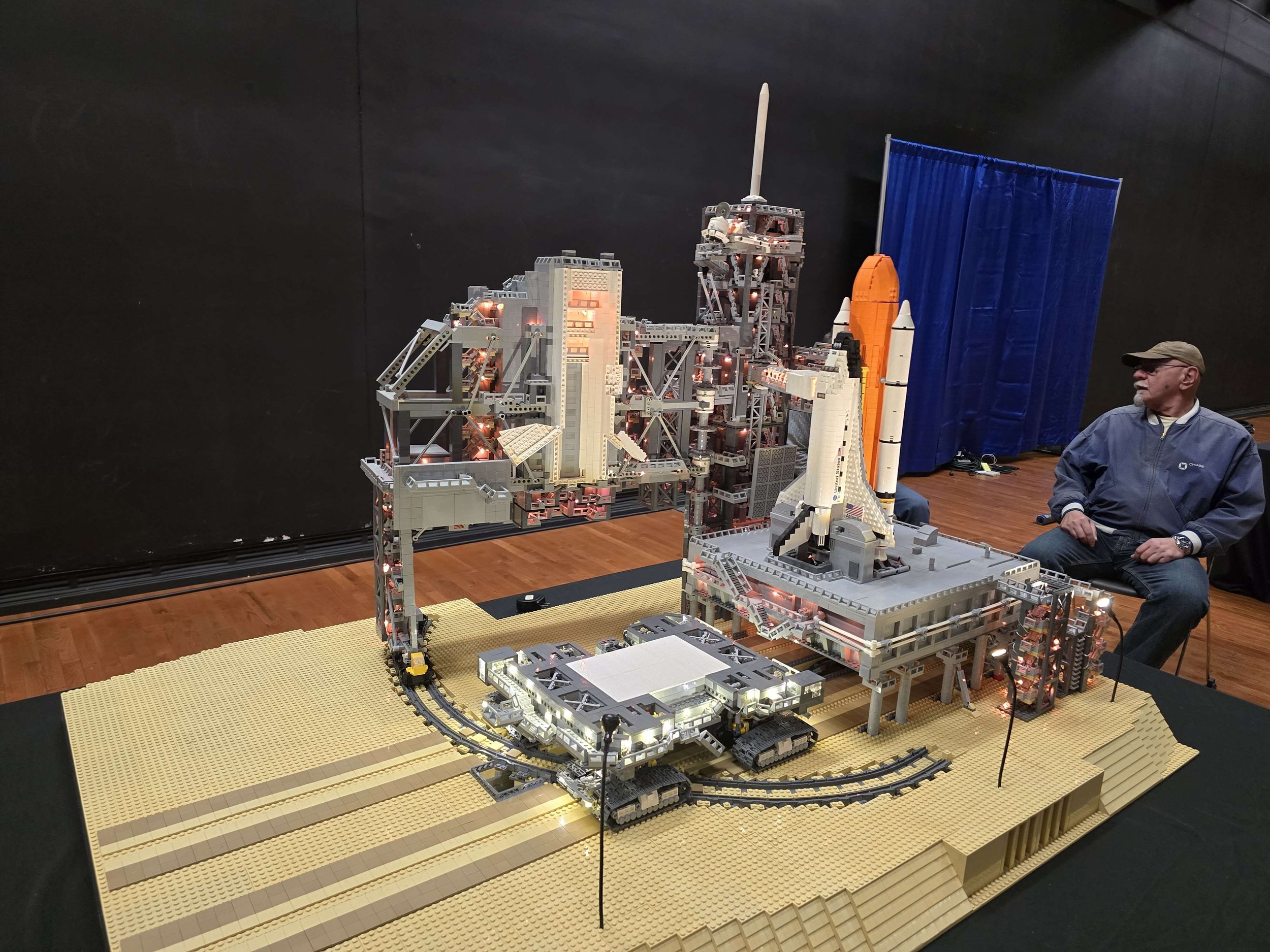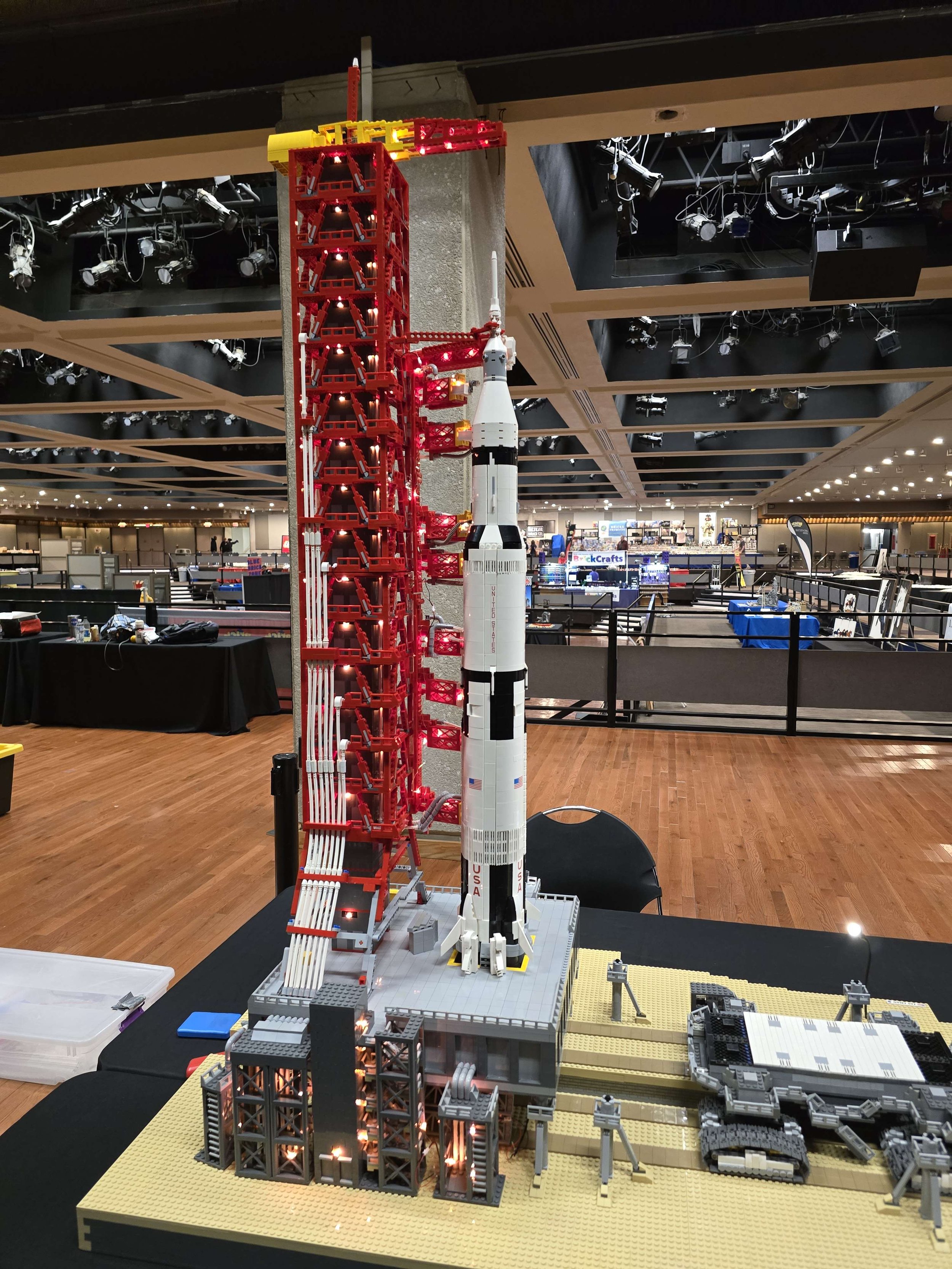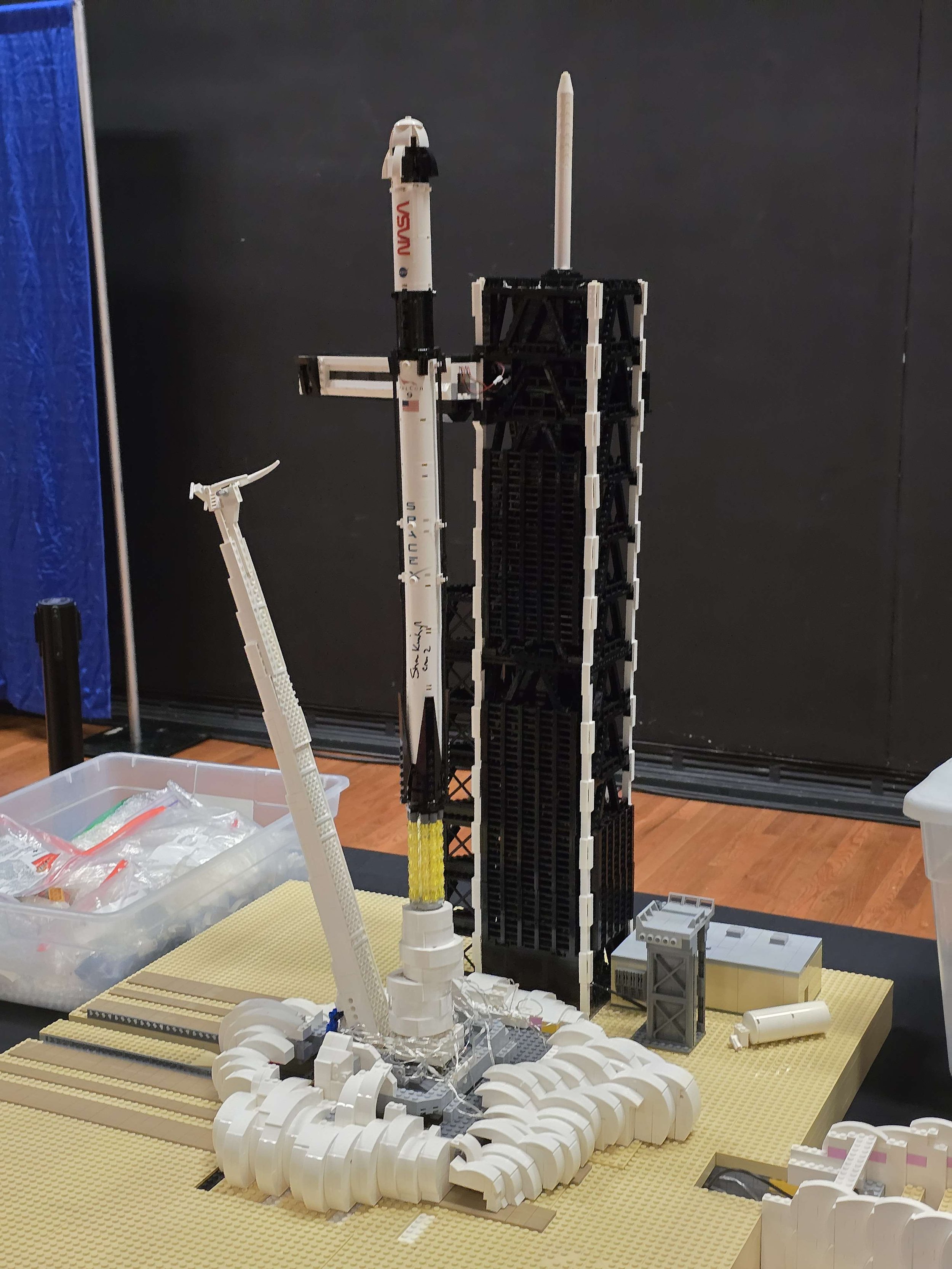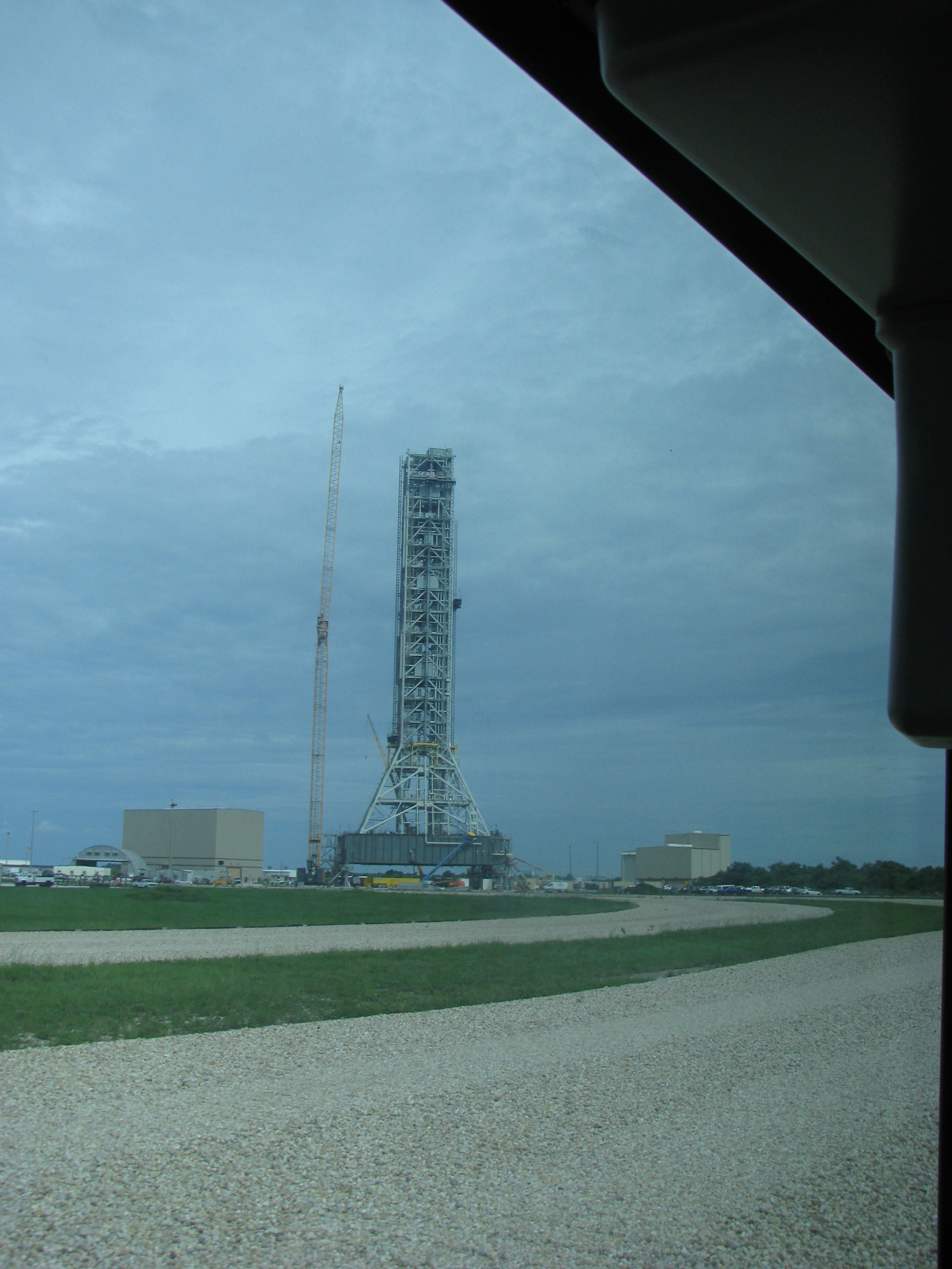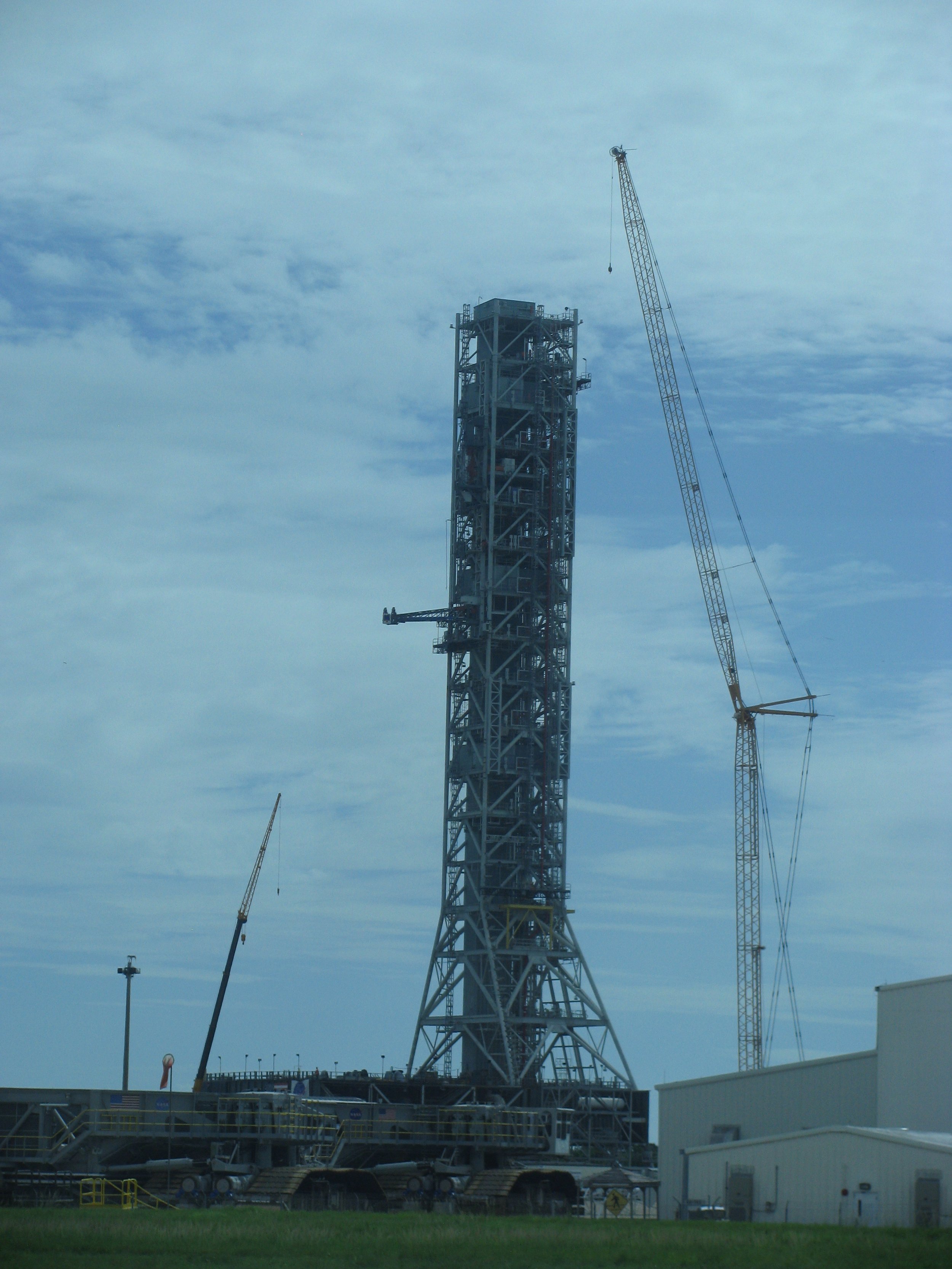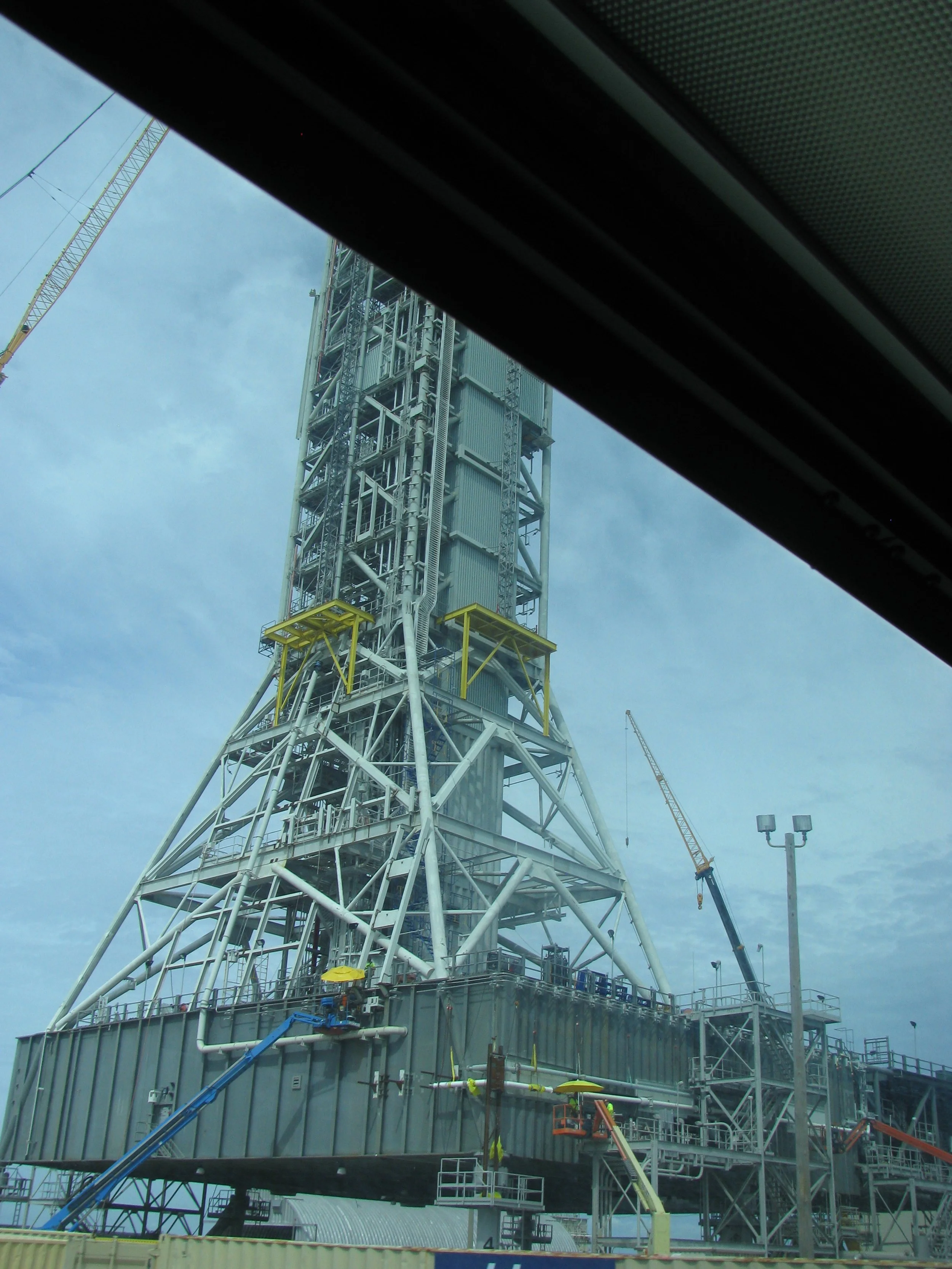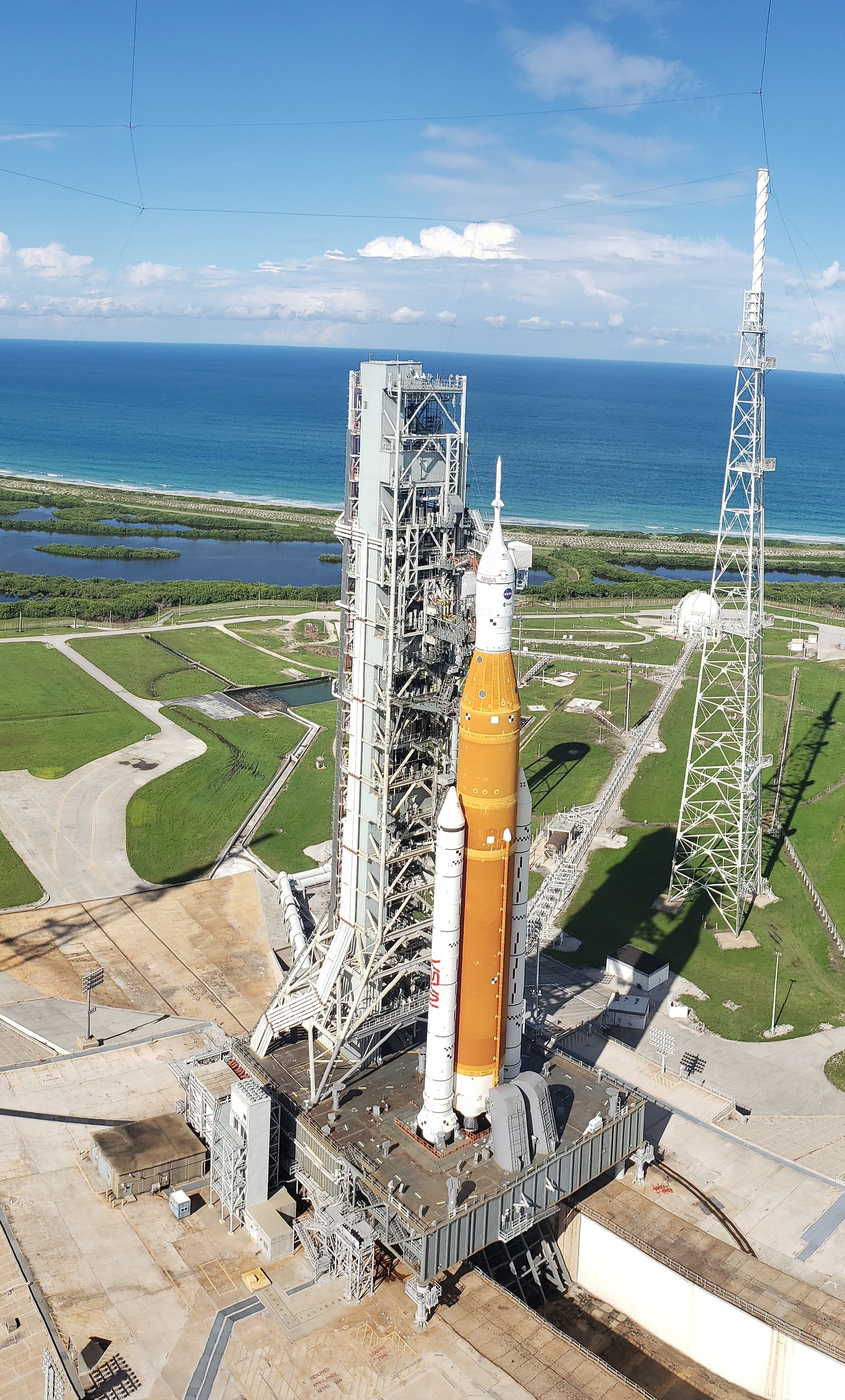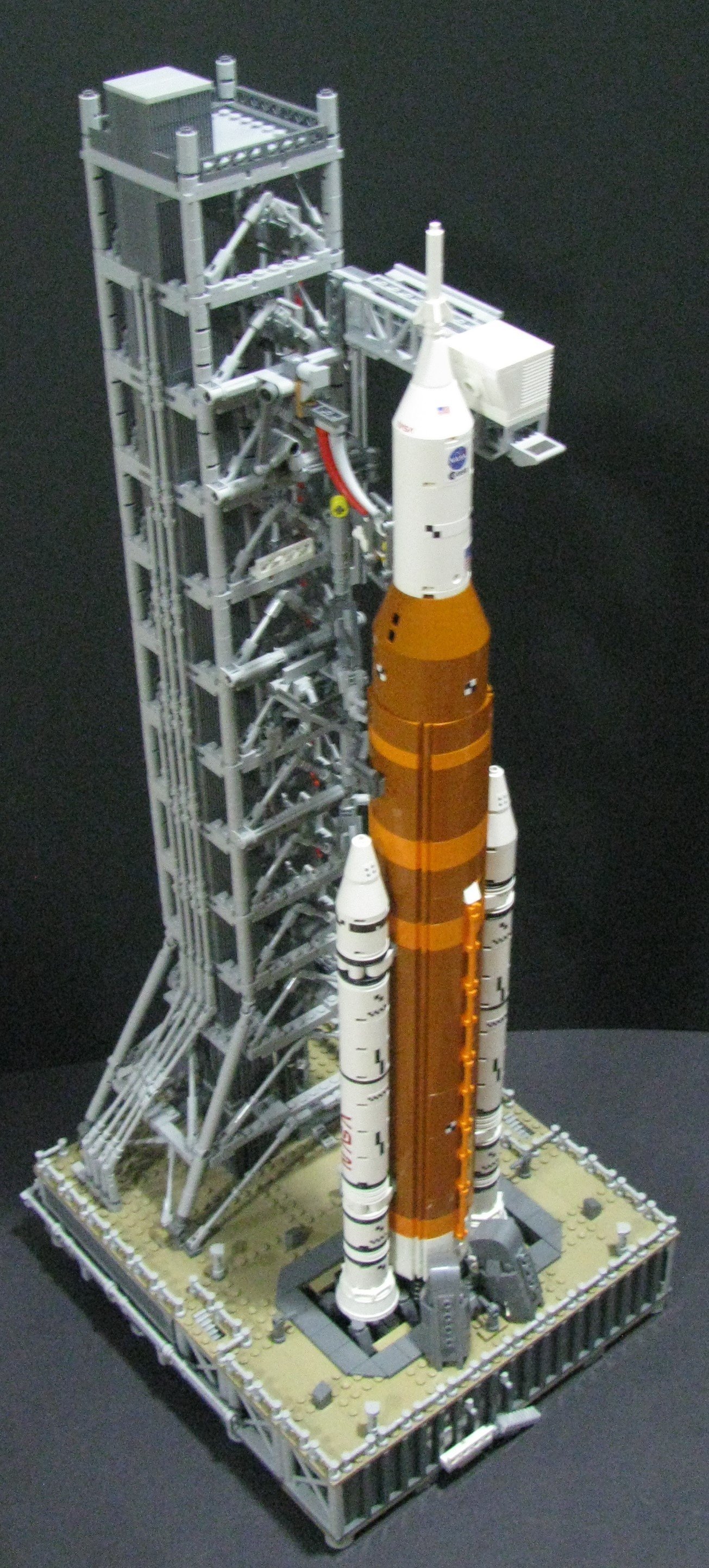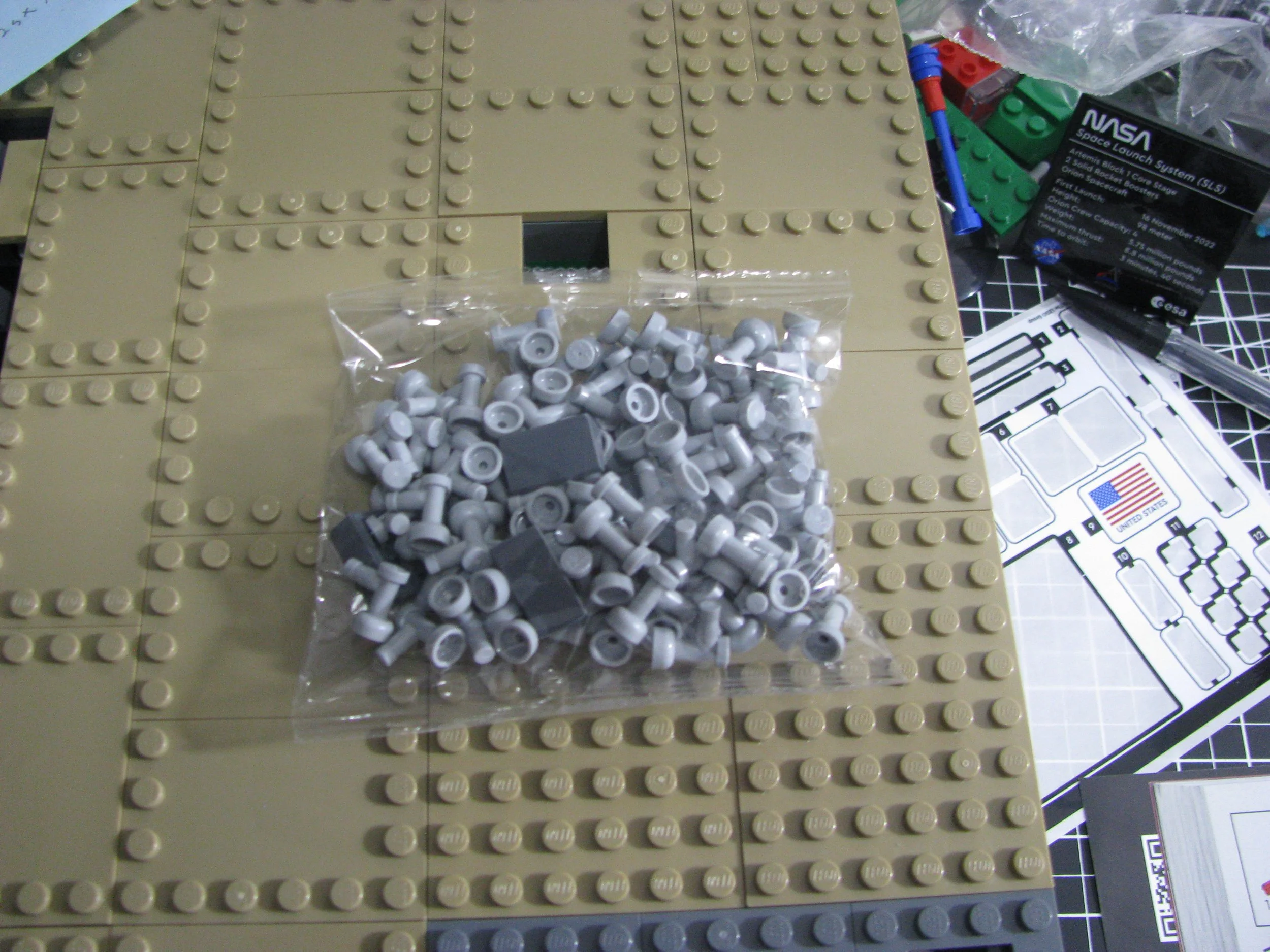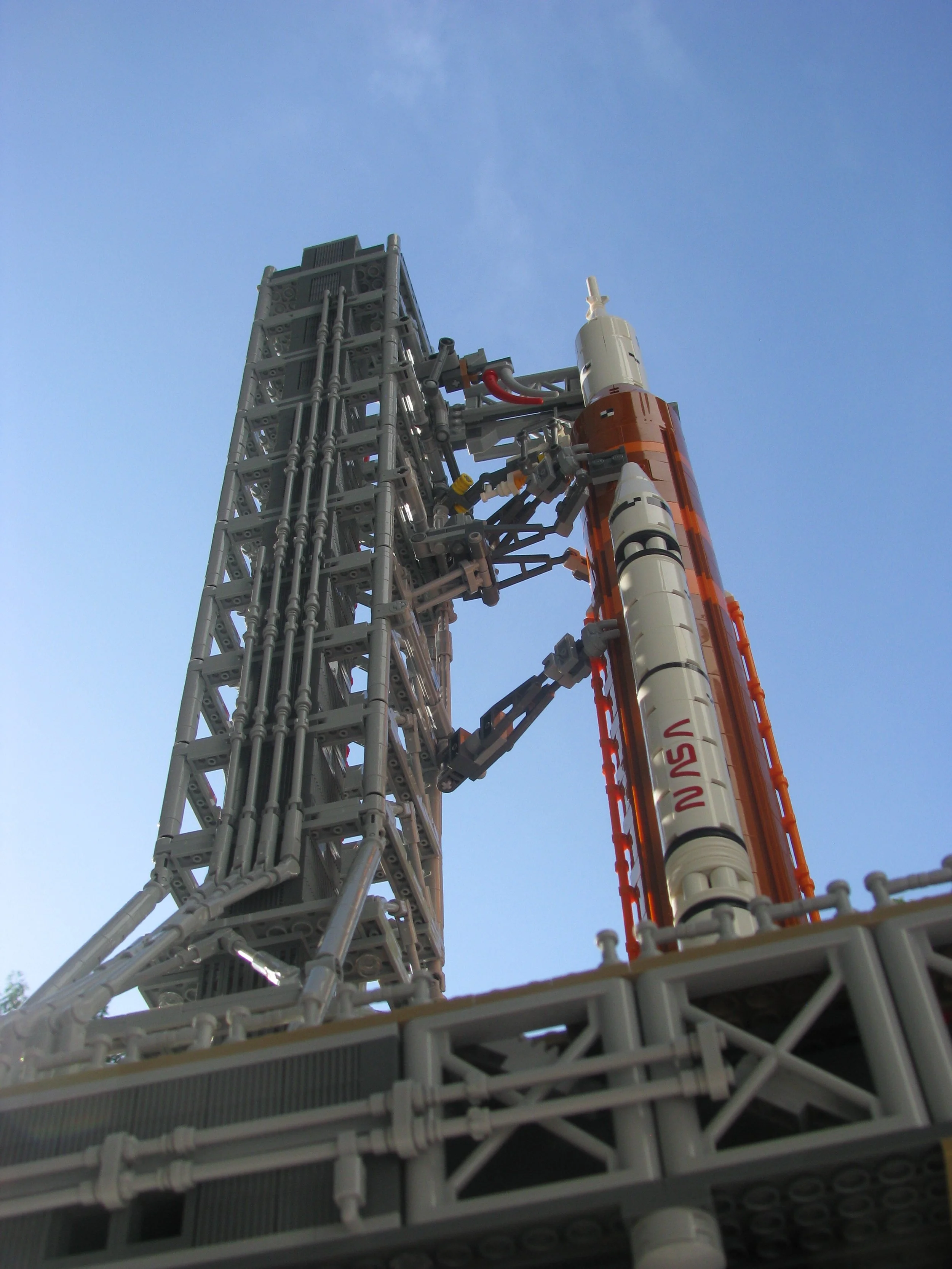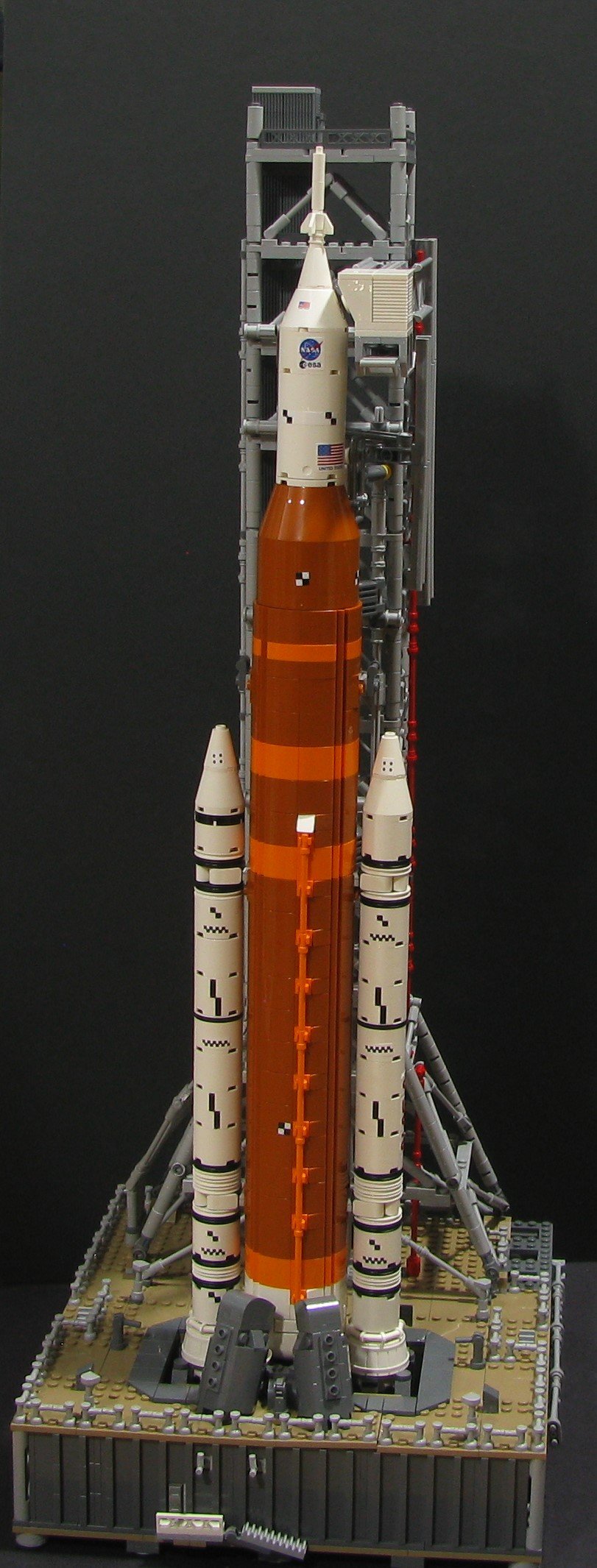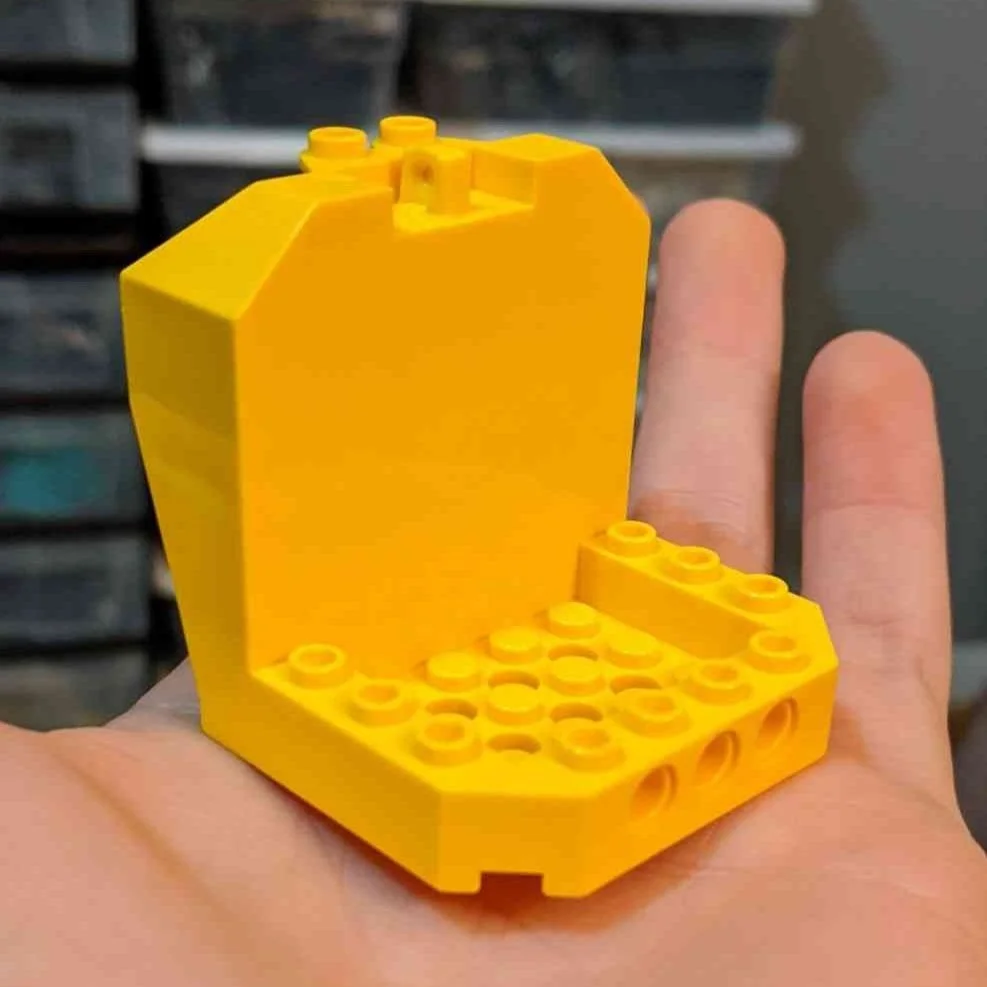Let’s Light This Candle! Launching the LEGO NASA Artemis SLS
/With the arrival of 10341 NASA Artemis Space Launch System, let’s look at the history of LEGO launch pads, analyze their scale, see what fans have built, and then see how the new set stacks up in comparison. It’s a LEGO space race starting in 5, 4, 3, 2, 1…
Space is Big and Fuel is Heavy
As Douglas Adams says in The Hitchhiker’s Guide to the Galaxy, “Space is big. You just won't believe how vastly, hugely, mind-bogglingly big it is. I mean, you may think it's a long way down the road to the chemist's, but that's just peanuts to space.”
Adams is not wrong; in fact, he’s understating things quite a bit. A rocket, especially one going to space, is a complicated balancing act. A rocket’s payload is essentially weight, and the more weight, the more fuel you need to get it into space. But more fuel means more weight you need to launch because the fuel is heavy. Thus, more fuel and structure are needed, which, guess what, creates more weight and fuel! (Watch this explainer from Neil Degrasse Tyson if you want to explore that conundrum further!)
IMage of Artemis launch via NASA.
The vast bulk of the Saturn V and the SLS is fuel/oxidizer tanks. Like space itself, rockets are big. The ISO shipping containers Michael Gale wrote about last month are generally 8 ft (2.44 m) wide, 8.5 ft (2.59 m) tall, and 20 or 40 ft (6.10 or 12.19 m) long. The Space Shuttle’s Payload Bay was 60 ft (m) long and 15 ft (m) in diameter. Ignoring square containers in a round payload bay, that’s 12 of the smaller 20 ft (6.1m) containers!
Getting to the moon takes a lot more energy, so the Saturn V and SLS are a lot bigger! Using 14 ft (4.27 m) as the height of one story of a building, the 322 ft (98.15m) SLS is 23 stories tall and the 363 ft (110.64 m) Saturn V is 26 stories tall, or 8-9 of those 40 ft ISO containers! (Since I switched analogies on you, the Shuttle Stack was 184 ft / 56.08 m a little over 13 stories.) It is really easy to forget when looking at a rocket launch on a TV or computer screen that these are very large vehicles with very large support structures. The size and power of the rockets is really breathtaking! I should know.
Early in my career I was part of the International Space Station Ground Processing team, I got to experience several Space Shuttle launches from only a few miles away (you can’t get closer than 3.3 miles (5.3 km)). I was far enough away that there was a delay between seeing the shuttle launch and hearing it. Well, you don’t so much hear it when the sound reaches you as get washed in vibrations that your whole body “hears”—and that is from 5 miles (8 km) away!
I also got the opportunity to go to the Pad with the shuttle on it for several missions for payload upload to the orbiter, usually 2-3 weeks before launch. Waking the launch tower far off the ground, looking down through the metal grating floors to see how high I was up, and seeing out over the Florida “jungle” and Atlantic Ocean, makes you realize how small you are in comparison. And all of that while standing next to something that has been and is going back to space!? Just, wow. I wish more people could have had that experience.
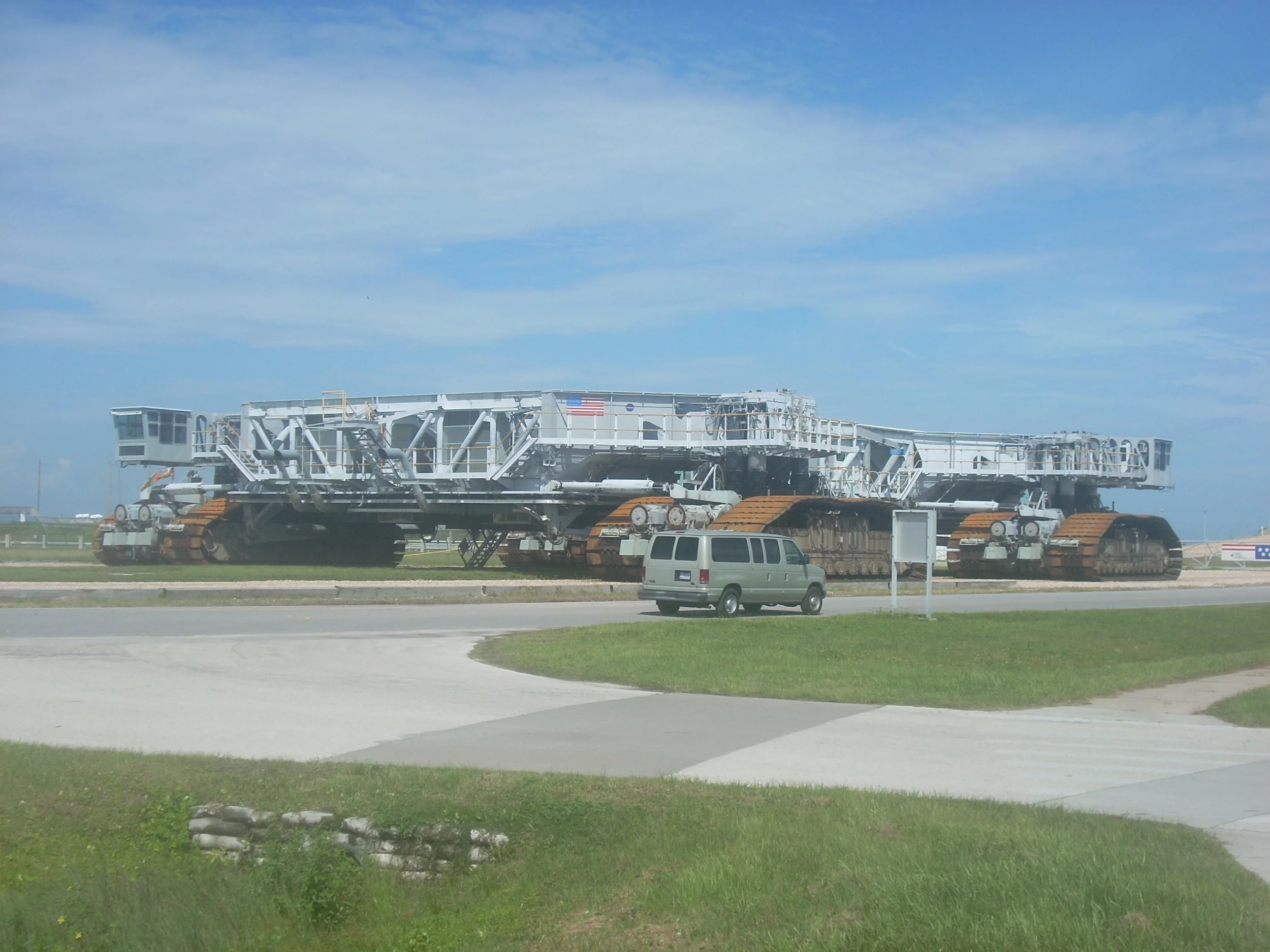
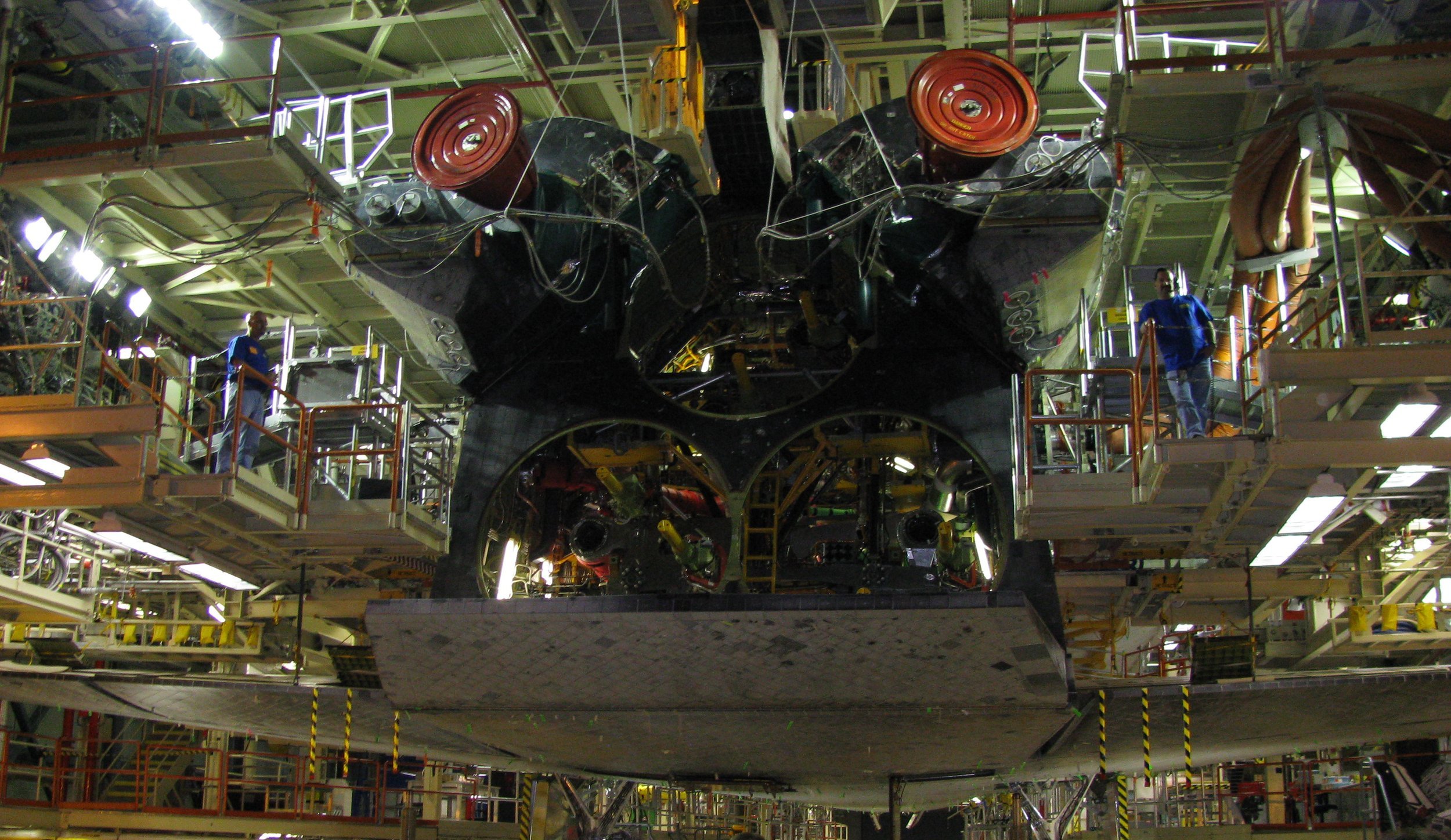
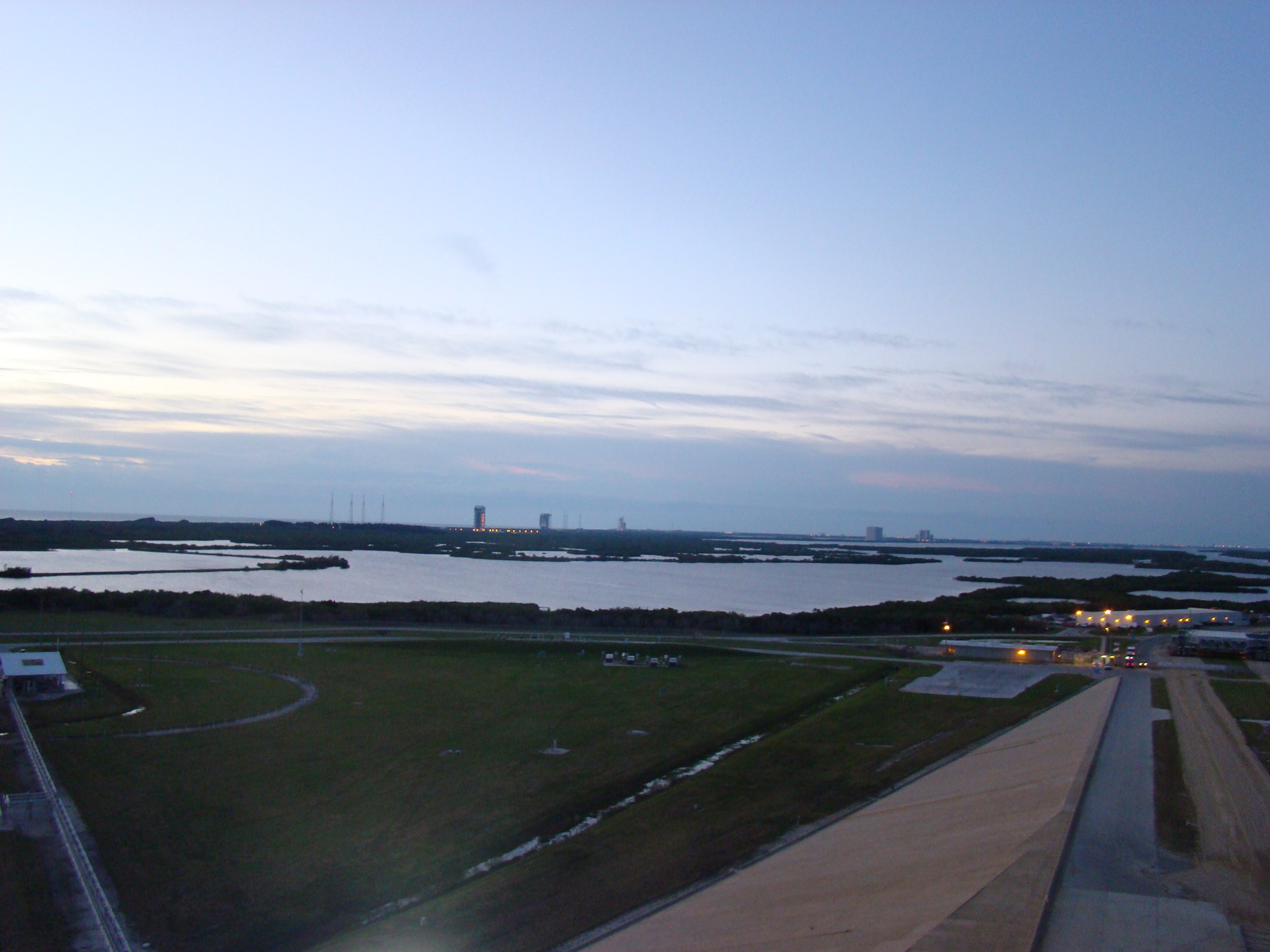
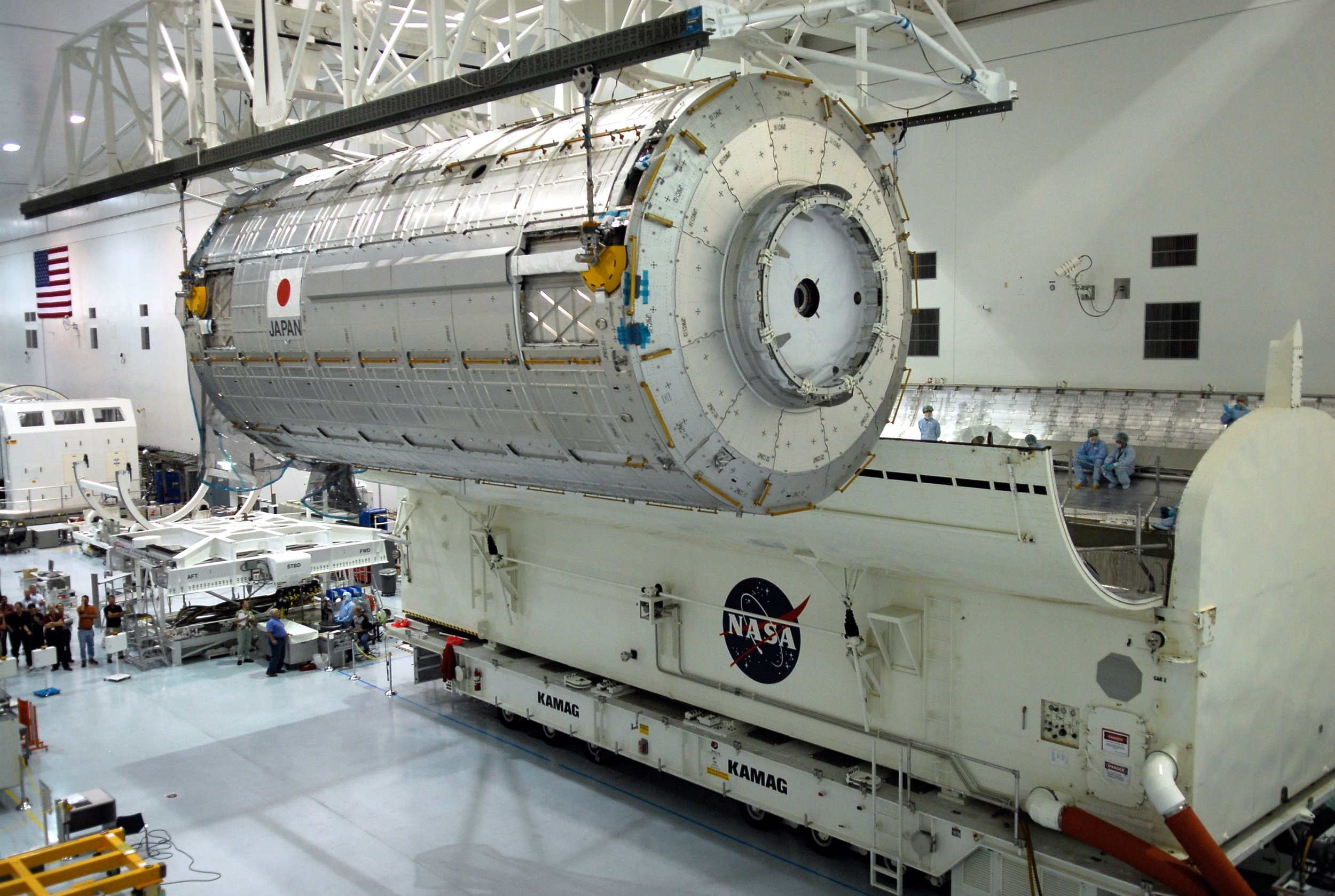

Launching LEGO
I no longer have access to Kennedy Space Center, but as LEGO continues its year of Space, you can now launch your own LEGO rocket with the large Icons NASA Artemis Space Launch System… in 1:160th scale!
What is really unique about this set is that it isn’t just the rocket like the Saturn V (21309 or 92716), or even just part of a launch system like the NASA Space Shuttle Discovery (10283) but the entire Mobile Launch Platform (MLP) and Launch Umbilical Tower (LUT) as well! This is the first time that LEGO has produced a set with such detailed launch support equipment.
So let’s take a look at some examples of the scale* of LEGO launch pads in sets and some fan-built ones as well before taking a closer look at the new Artemis set.
*A note on scale: Measurements were taken with a dial caliper if less than 6” and a ruler with 1/16” graduations for over 6”. For all rockets that are not the SLS, real dimensions came from Peter Alway’s Rockets of the World 4th Edition, one of the go-to books for scale model rocket builders; SLS data came from NASA. I was not terribly scientific in my methods so scales are all approximate. Diameter and overall length were checked for round rockets; for the Shuttle orbiters, I used length and wing span.
Space Shuttle Launch 1682
The beginning of the minifigure-scale “real space” sets, 1990’s 1682 Space Shuttle Launch, is actually a fairly reasonable rendition of the shuttle and has a Fixed Service Structure (FSS) and Rotating Service Structure (RSS) that were the launch towers for the Space Shuttle. The crane at the top is accurate as is the red paint as seen in the fit check photo for Enterprise. The launch tower would eventually lose its red paint and large crane.
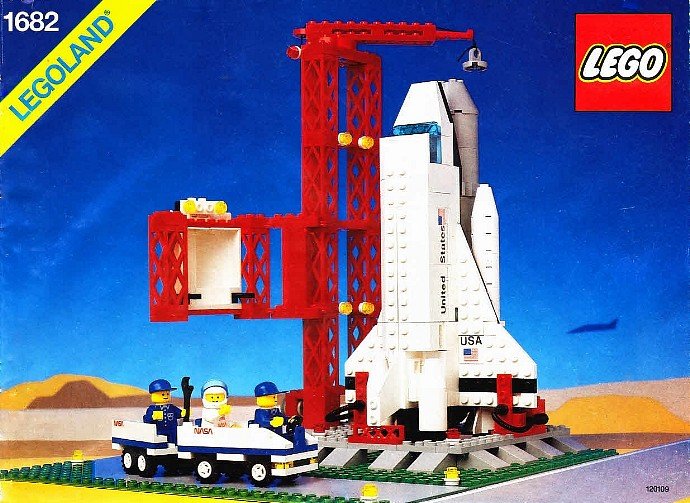
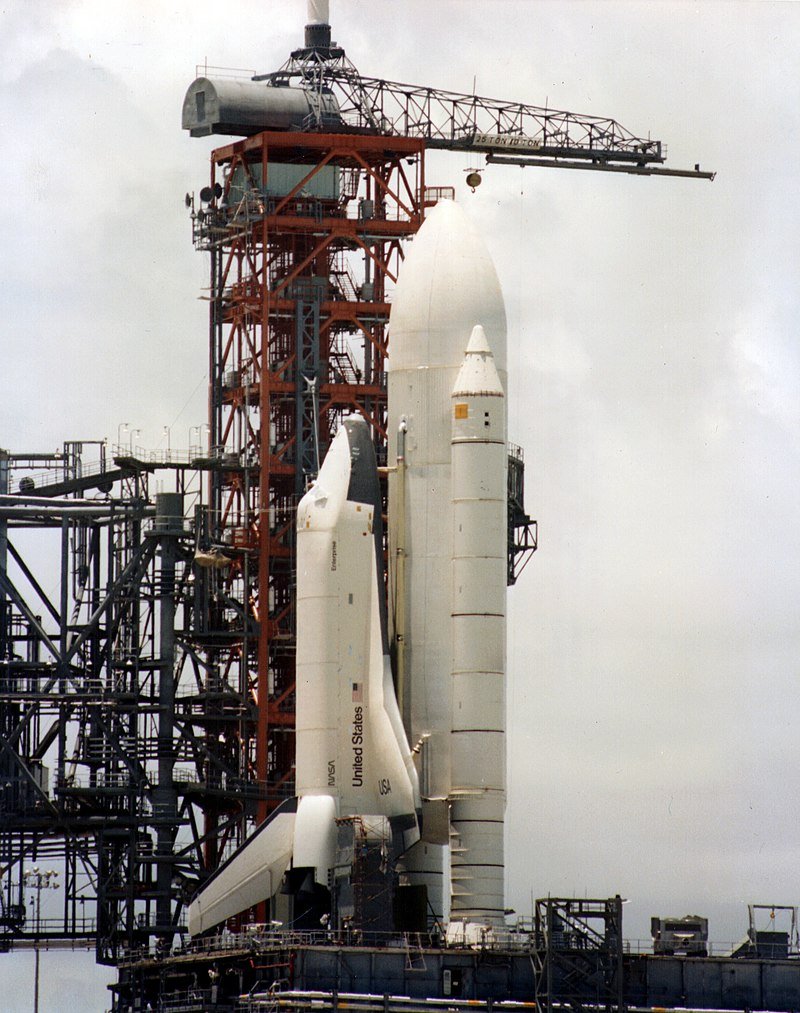
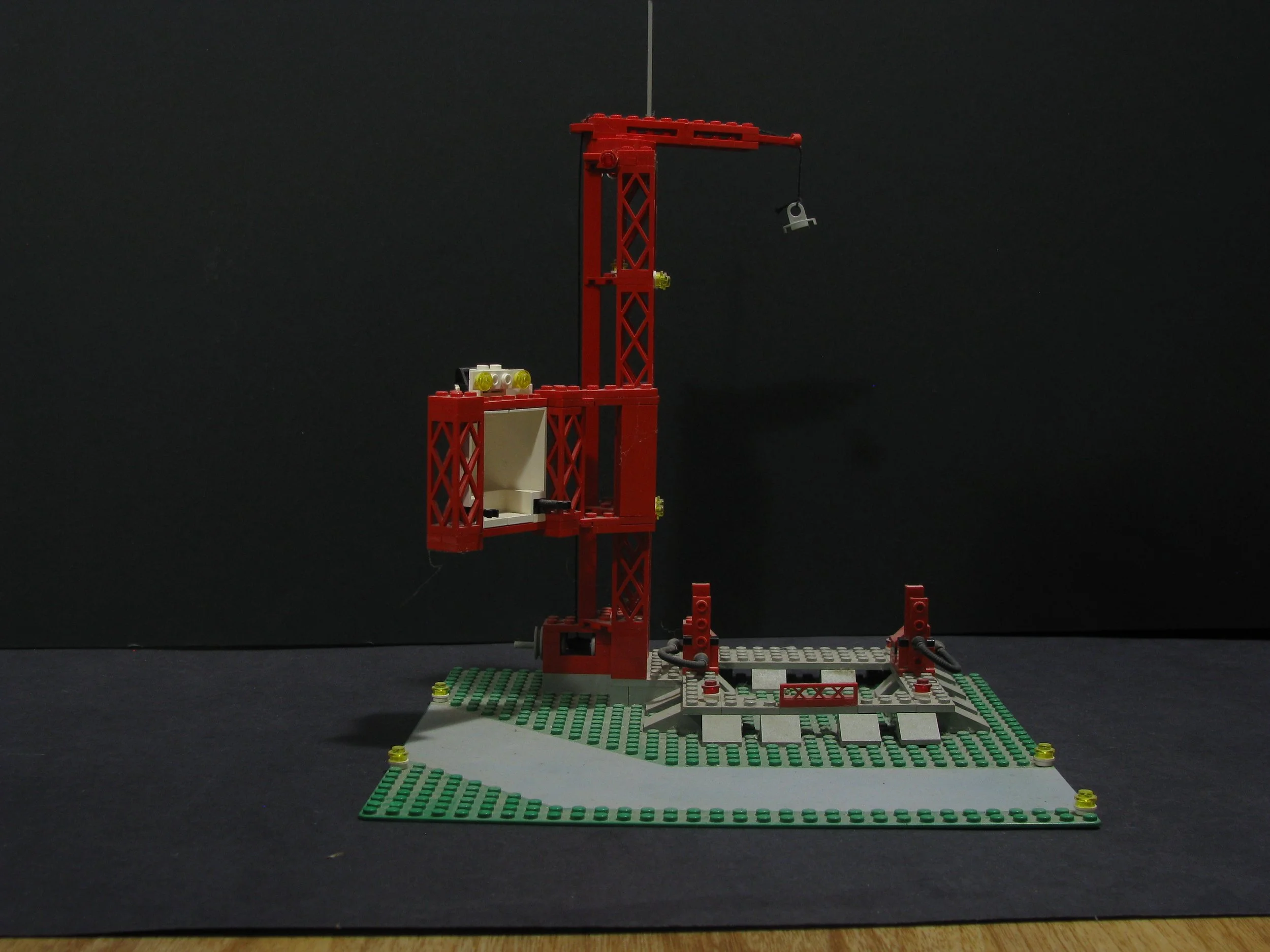
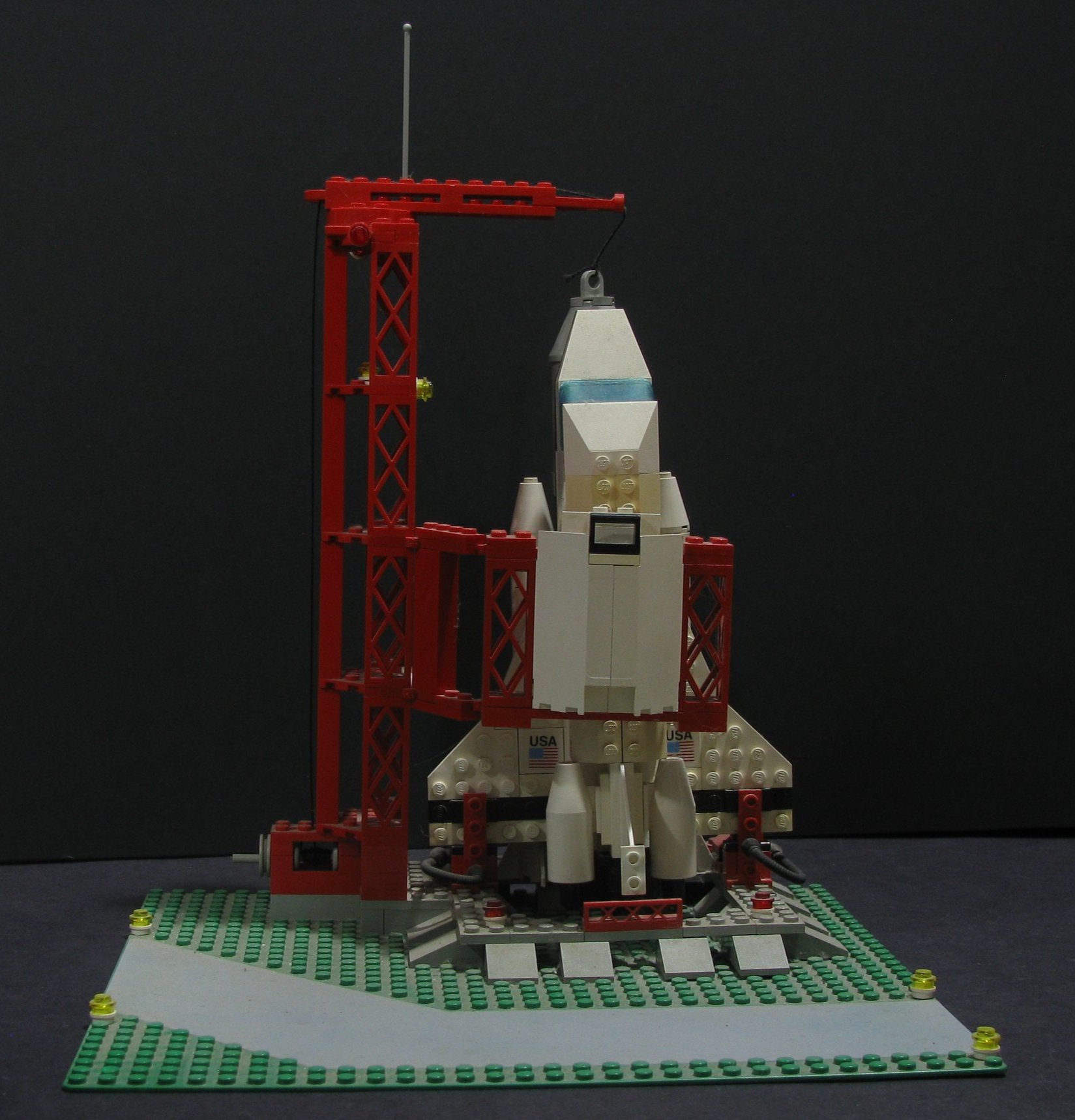
The scale of the Shuttle Orbiter is about 1:170 but the Solid Rocket Boosters (SRBs) and External Tanks (ET) are closer to 1:280. For most minifigure scale Space Shuttles, the orbiter is at a different scale than the SRB and ET. The other point of fame for this set is the black barrels—for 30 years, the three SSMEs in this set were the only way to get black barrels until Barracuda Bay came along…
Shuttle Launch Pad 6339
I missed this one as a kid. In many ways, 6339 Shuttle Launch Pad is similar to set 1682, with a red FSS and crane. The Orbiter is around 1:180th and the SRBs and ET are around 1:265th scales.
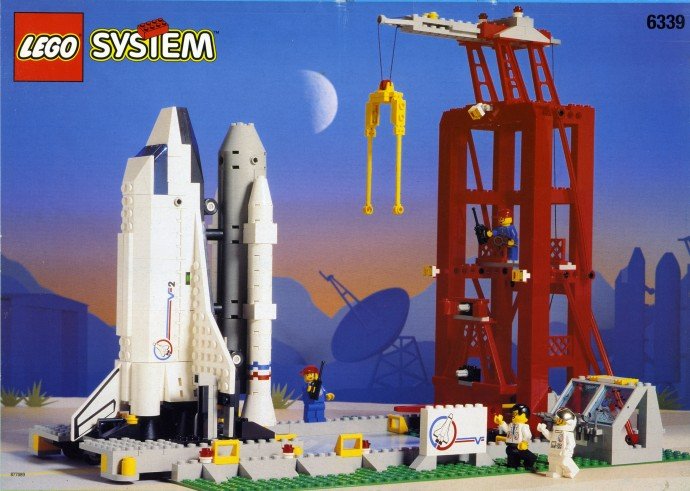
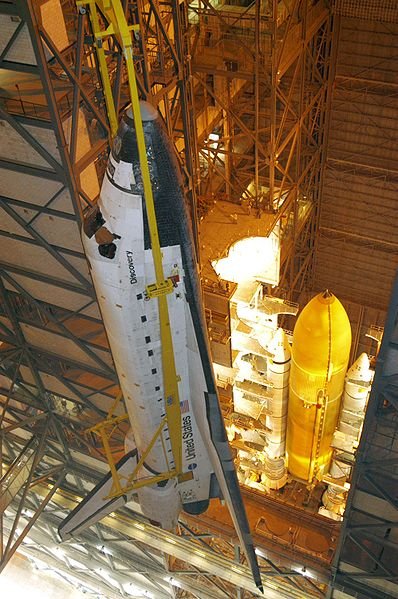
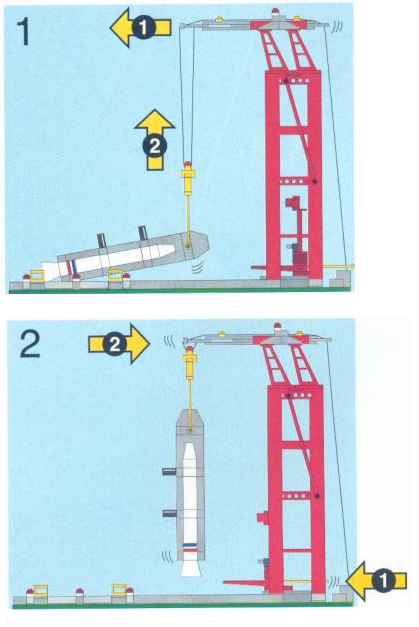
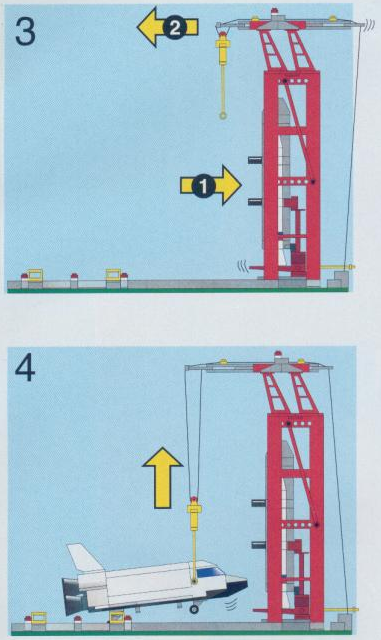
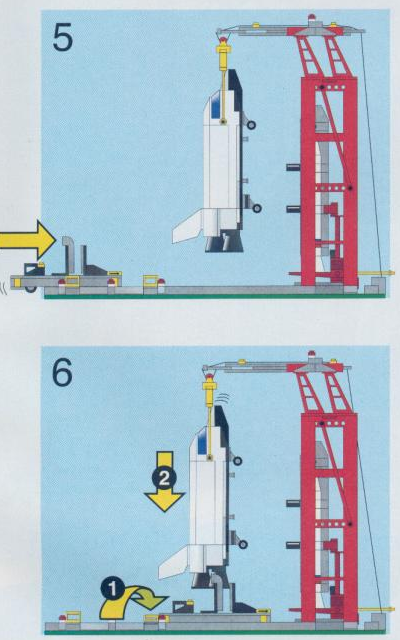
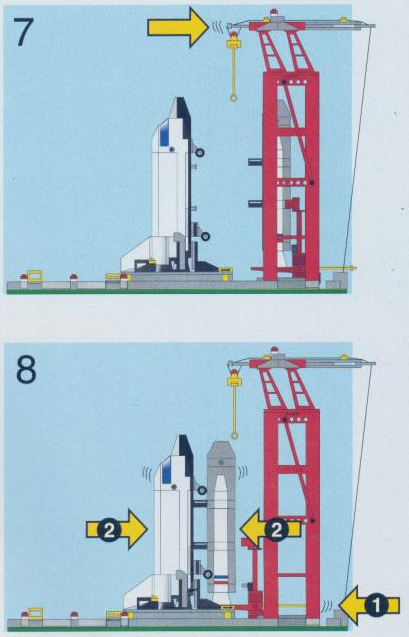
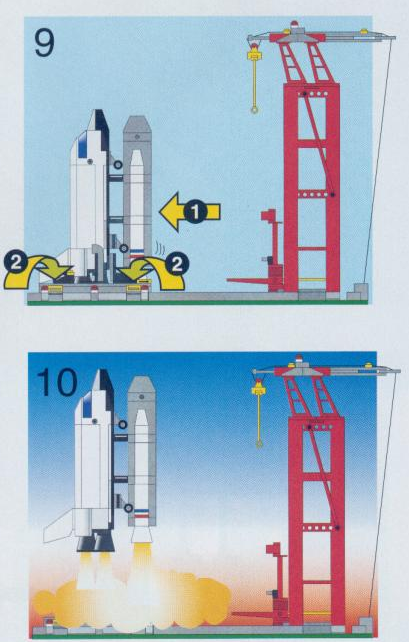
The unique thing about this set is that, as a play function, you could stack the shuttle somewhat similarly to how NASA did it! The set also included a very simple crawler/MLP as well.
Discovery Theme
For real space fans, the 2003 Discovery Theme has a lot of good stuff—I own most of the line and am only missing 10029 Lunar Lander. There are three sets that contain launch vehicles in the line: the Saturn V in set 7468, the Space Shuttle Discovery in set 7470, and the Delta II in set 7469. The Saturn V is 1:320th scale and Discovery is 1:90th scale, and neither contains any launch towers. They are fantastic sets and I love them, but let’s move on.
The Delta II in set 7469 Misson to Mars is right at 1:160th scale so it nicely compares to the SLS model. The Delta II was a workhorse for NASA and the US Air Force. From 1989 to 2018, the Delta II’s flew 153 out of 155 missions successfully—a very short list of notable payloads included the GPS constellation, Kepler Space Telescope, Mars Pathfinder, and Mars Exploration Rovers (Spirit and Opportunity).
Sand green doesn’t quite match the “Delta Blue” of the rocket but a similar blue color didn’t exist in the LEGO palette at the time. The Deltas were assembled at the pad and the Mobile Gantry rolled out a short distance from the assembly gantry for launch. Set 7469 came with the Mobile Gantry and captures it quite well.
Shuttles Platforms and Centers
The two Shuttle Adventure/Expedition 10213/10231 sets were limited to a baseplate with the T-0 Umbilical Mast structures from the shuttle era MLP and some free-standing lights. They are ~1:110 scale, close to the Saturn V (which also had two sets 21309 and 92176).
Shuttle Adventure 10213
Ideas of Space
Two major LEGO Ideas projects tried to get more Apollo/Saturn hardware turned into set form. Valerie Rocke (Whatsuptoday) and Emmanuel Urquieta (Spacemd) achieved 10,000 votes but were ultimately turned down for a very nice, nearly 3,000-piece Saturn MLP and LUT. While a great many space fans would have loved this complimentary set to the Saturn V, I’m not surprised that LEGO passed on this one. Only a subset of those who bought the Saturn V would have been interested. Roche has several albums on Flickr with more details, including this great one by Greg Kremer.
While not part of the pad structure, Effleman’s Crawler Transporter is another great piece of Saturn/Shuttle/SLS hardware, but it sadly failed to get to the 10,000-vote mark.
Miniland, MOCs and More
Miniland at Legoland Florida has an excellent large-scale Shuttle with FSS and RSS, and it smokes and “launches” every few minutes (a few other Legoland parks have this too). The MLP is positioned a bit far from the shuttle for true scale but is a highly detailed rendition. I was there in 2017, so I do not know if it has been updated from the Shuttle to SLS since then.
Recently miniland at Legoland Billund installed a giant SLS build, photographed here thanks to BrickNerd alum Francesco Spreafico. It also looks like the KSC Rocket Garden is in the background with a Saturn 1B, Gemini/Titan, Mercury-Atlas, and maybe an Atlas Agena too.
Photo of Legoland Billund minland SLS by Francesco Spreafico.
My friend and LUGmate, Mark Hartford, is also a big Space nerd. He gave a talk at Brickworld after the Saturn V came out highlighting what LEGO got right and what could be better. He’s modified his Saturn V as well, you’ll notice. His MLP and LUT are based on a design he found on YouTube shortly after the release of the set (he doesn’t recall which), and the Crawler is based on the Ideas submission above. There is lots of interior detail and floors on the LUT to look into. (FYI Angry Unikitty is not standard, but Unikitties spontaneously spawn at some of our displays and add some levity.)
She really captures some nice details like the ice breaking off of the outside of the Saturn V (liquid Oxygen and Hydrogen are really cold and freezes the moisture out of the humid Florida air!) She’s also not content to have static rockets but lights them up and precariously balances them on columns of transparent bricks for dynamic lift offs.
Thanks to our Nerd-in-Chief Dave for pointing me to Lia’s work—he recently met her at a Brick Universe event where she displays many of her builds if you ever want to see them in person.
8.8 Million Pounds of Thrust
I will freely admit that I am very excited for humanity’s return to the moon and the other opportunities that the SLS will open for exploration—including landing the first people on the moon in five decades with the first woman and person of color! (All the Apollo astronauts were white men with all but Harrison Schmitt being former military.) Personally, I did call it the Senate Launch System easily on like many of my peers as many aspects of the rocket’s performance were legislated and not chosen by engineers. The launch rate is low, at approximately once every other year at current estimates—and the program is expensive!
Also, in this science fiction age we live in, which represents 25 years of continuous orbital living and reusable rockets, the SLS with shuttle-derived SRBs and RS-25/SSME main engines are not reusable. Thankfully the LEGO version can be built and re-built hundreds of times!
Interestingly, I have mixed feelings about 10341 NASA Artemis Space Launch System. It is a fantastic showpiece, and I love the big swing the designers took with the MLP and LUT in addition to the SLS. The tension and excitement invoked by a rocket waiting to launch is palpable in the display. The orange and white rocket is highlighted by the greys of the MLP/LUT—it looks good!
However, like the real rocket, there are issues (some from a building perspective and some from the perspective of an expert who has experienced the real thing). The SLS and the MLP itself are a little repetitive in the build but not bad. The LUT, however, spans five bags of parts which includes 282 dark stone grey profile bricks (7.8% of the parts count). Stacking them in columns three bricks high, along with some repetitive girder work, takes a while. (See BrickNerd’s Eiffel Tower… um UCS Christmas Tree review to see more about repetitive girder work!)
Don’t get me wrong. Lots of the girder work and piping are well done but some areas are left completely open on floors where more details can be easily seen in the actual photos of the site. At least give me elevator doors on the MLP and on the floor with the Crew access arm/white room so my tiny astronauts can get to the rocket!
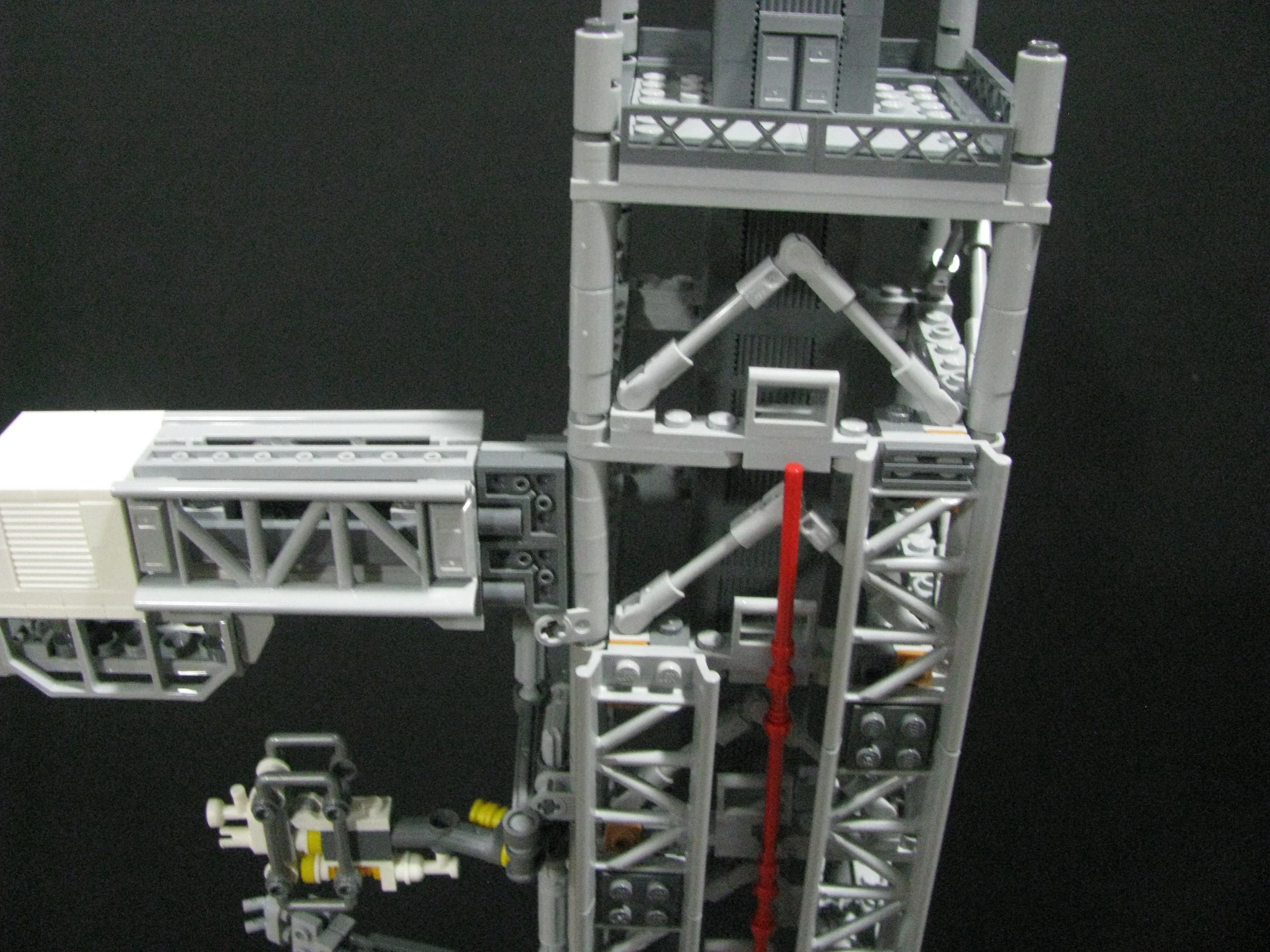
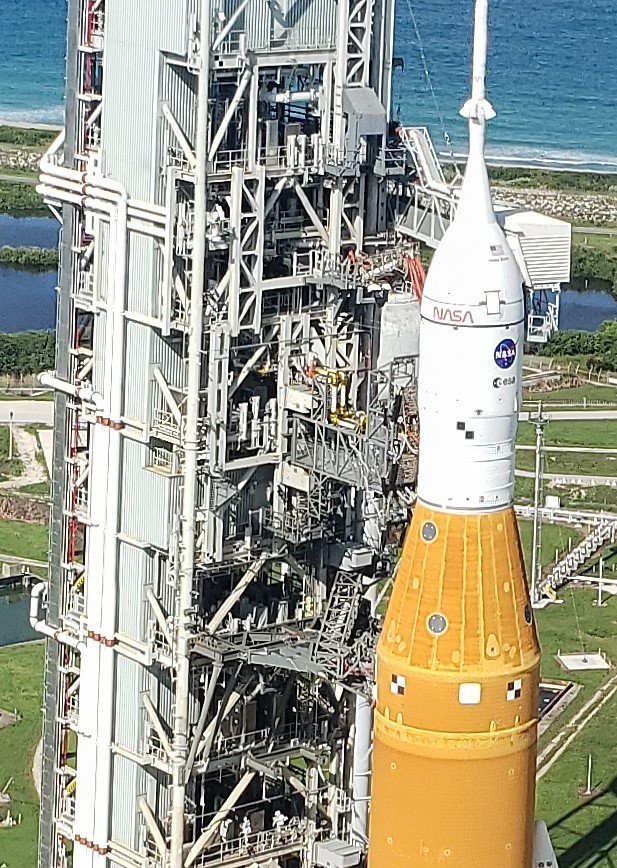
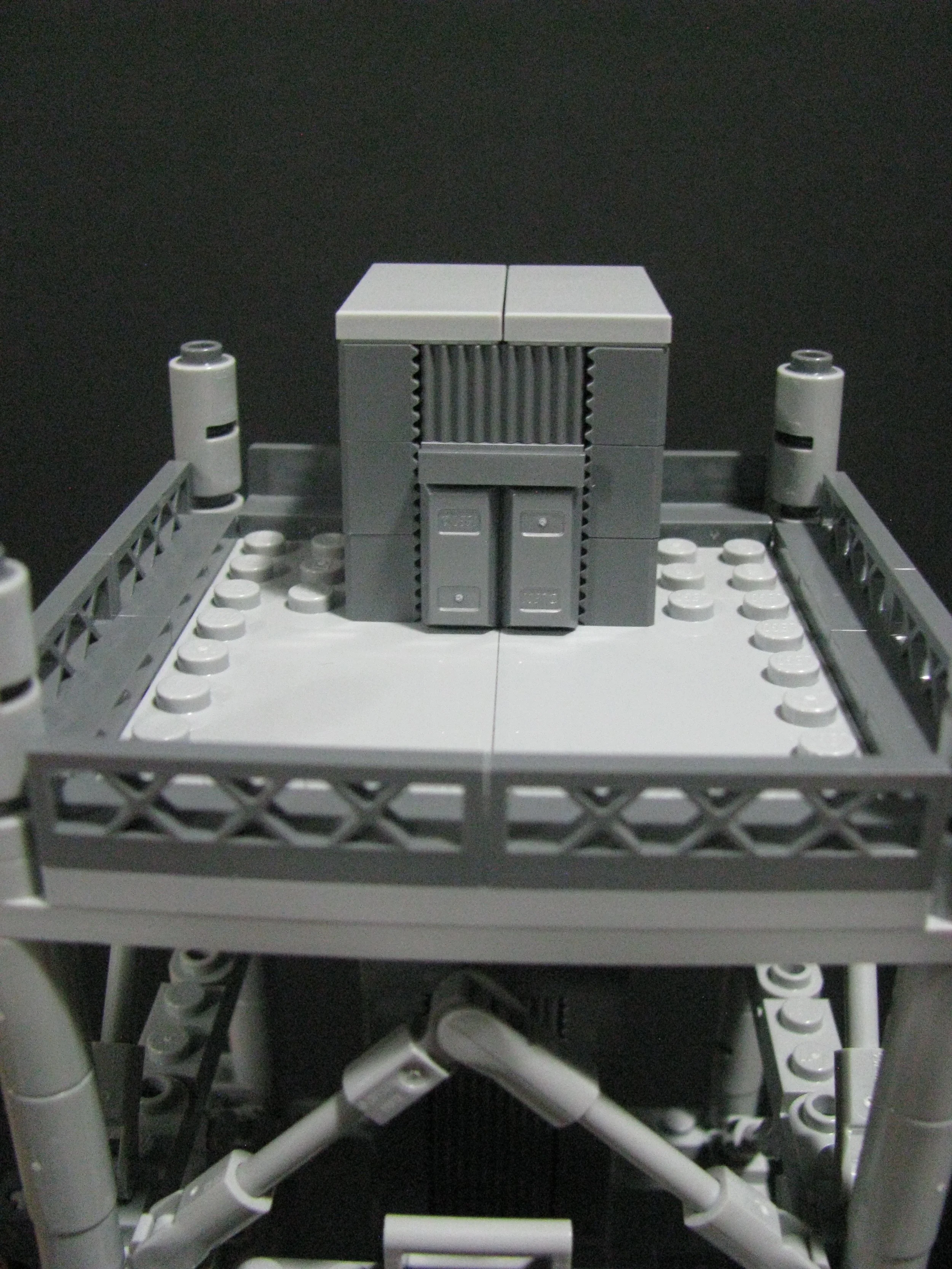
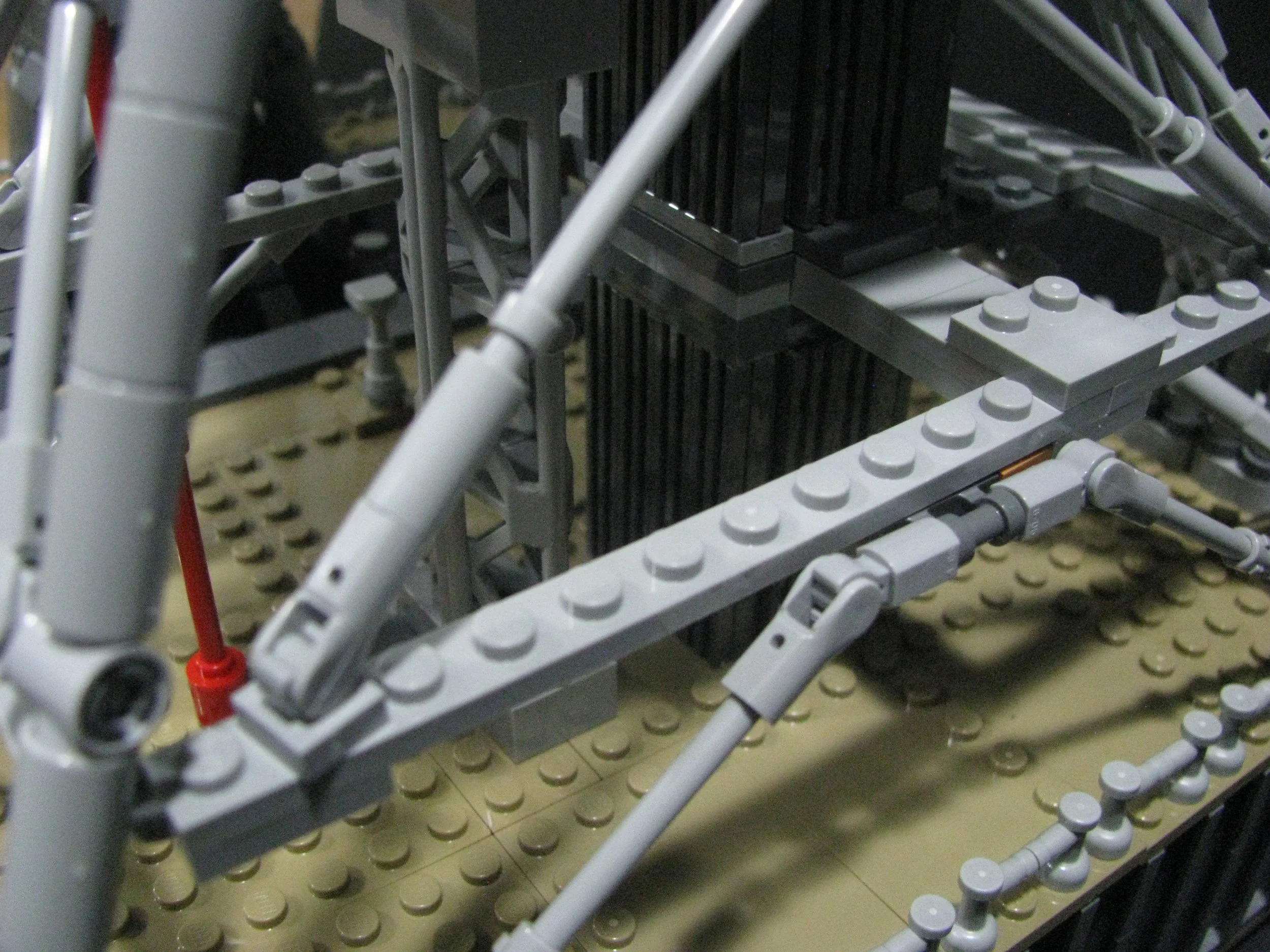
Initially, I was torn by the orange and dark orange of the rocket. The insulation foam used on the Shuttle ET and the SLS grows darker with UV exposure and does shade with thickness. The orange is a bit too bright, but the set, on the whole contrast, makes the composition of the scene pop more. Also, there is nothing in the palate that would have worked better—the new Reddish Orange color is too red and various flesh tones are too brown. The foam color is very hard to capture—I’ve been in lots of scale model discussions about it, and it all boils down to the fact that the foam changes color over time, and orange is tricky. So overall I applaud the design team for trying to capture the contrasting oranges.
A silly statistical thing that I enjoyed about this set is that it uses the tap pieces for the handrails on the MLP; you get 88 of them (2.61% of parts), which all come in a bag with a few 1x2 cheese slopes. Some other interesting part count statistics are that the total of the above-mentioned taps and profile bricks, along with many 2x2 bows (mostly in dark orange) and rod clips and rod ends make up 20.08% of the part count! The SLS itself only represents 17.75% of the total parts, so you get more greebling than rocket.
It’s an interesting and dynamic set in many respects. It is also very fun to photograph! There are lots of opportunities to play with shadows and dynamic lighting. I’m excited to see what people do who are much better photographers than myself! If I had thought of this earlier, some dry ice would have made it look like a launch day. I imagined the point of view of the astronauts looking up at the rocket for this photo.
SLS in the morning light
Go for Launch
All things considered, I’m giving a cautious “Go for Launch” call for the NASA Artemis Space Launch System set. I was super excited when rumors surfaced about it earlier this year, and even more so when it arrived at my house from LEGO on behalf of BrickNerd (before any images leaked).
The SLS itself is an enjoyable build. The MLP is fun in that the designers chose to expose some of the internal piping and not just make it a big grey rectangle. As I said above, the LUT is a very repetitive build. They tried to break it up in the middle a bit, but I ended up building whole sections with just the occasional glance at the instructions.
Some of my mixed feelings may be in comparison to the afterglow of the Saturn V and recent Shuttle Discovery sets. The Saturn V is one of my favorite all-time builds—it made me excited about a set in a way I hadn’t felt in a long time. And having worked on the actual Shuttle at NASA, building the set of it (10283) was a special experience for me as well.
I think it comes down to the fact that not all sets are for everyone. It’s a great “seen from 3-feet (1 m) away” scale model, but if you get too close, a lot of the details are lacking. It by no means is a bad set—I do like it. In fact, knowing what I know, I would have still purchased it. For casual fans of space and LEGO, this is a great set that teaches a lot about how the Artemis SLS works. For experts, it is a cute desk model.
So, if you are on the fence about getting this set, I can’t really offer anything like price or part counts to sway your opinion; however, if you are a space geek like me, this is definitely an eye-catching set to add to your collection.
10341 NASA Artemis Space Launch System will be available from stores and online beginning May 15th for $259.99 in the US, $339.99 in Canada, £219.99 in the United Kingdom, and $449.99 in Australia.
Space trivia: The title of this article is taken from Alan Shepard, who shouted “Light this candle!” in frustration while strapped into the tiny Mercury spacecraft on top of a converted ballistic missile on May 5, 1961, before becoming the first American in space.
DISCLAIMER: This set was provided to BrickNerd by LEGO. Any opinions expressed in this article are those of the author.
Did we miss any of your favorite LEGO space launch pads? (DuckTales doesn’t count.) Let us know in the comments below!
Do you want to help BrickNerd continue publishing articles like this one? Become a top patron like Charlie Stephens, Marc & Liz Puleo, Paige Mueller, Rob Klingberg from Brickstuff, John & Joshua Hanlon from Beyond the Brick, Megan Lum, Andy Price, Lukas Kurth from StoneWars, Wayne Tyler, Monica Innis, Dan Church, and Roxanne Baxter to show your support, get early access, exclusive swag and more.



